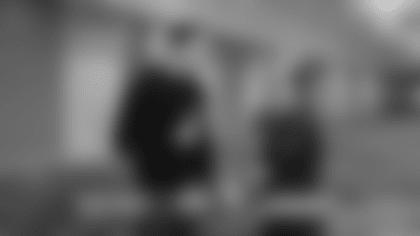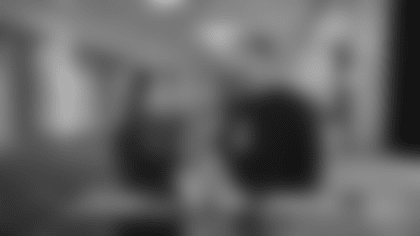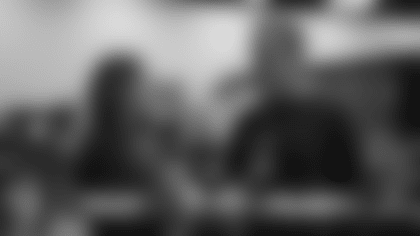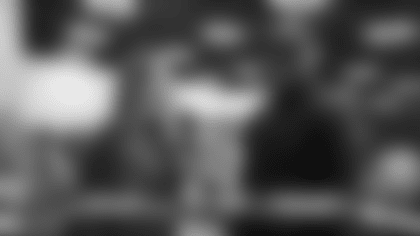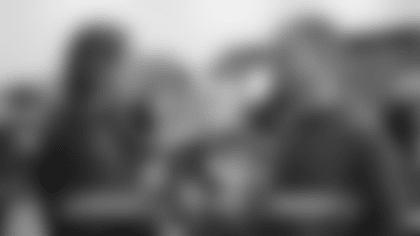The Vikings have celebrated Black History Month with insightful and educational opportunities that have featured Legends, current players and staff members.
The efforts included discussions for public consumption like Warren Moon's recent appearance on the Minnesota Vikings Podcast to describe what it was like to break barriers as a Black quarterback.
They also included a panel discussion for students who are participating in the 306 African American History Course that is a partnership between the Vikings and EVERFI.
"Across the Generations"
Titled "Across the Generations: A Conversation with Gene Washington, Steve Jordan, Tony Richardson & Ameer Abdullah," the hourlong virtual chat continued the conversation Thursday morning.
The players span decades of connections to the organization.
Washington was a wide receiver in Purple from 1967 to 1972. Jordan, a 2019 Vikings Ring of Honor inductee, spent his entire career with the team from 1982-94.
Richardson, a fullback, played for Minnesota from 2006-07. Abdullah, a running back and key special teams player, joined the Vikings in November 2018.
The panel was moderated by Trevian White, a partnership activation coordinator with the Vikings, and Owner/President Mark Wilf welcomed the panelists.
Here are highlights from the discussion:
Washington on hearing Dr. Martin Luther King, Jr., speak in February of 1965 at Michigan State
"At the time of Dr. King's visit [when I was a] sophomore, I was living in a fully integrated MSU environment. However, my home state of Texas was still fully segregated. My family and my loved ones were still living under Texas segregation. And all Texas sports, Black and white athletes could not play together as teammates – or even play against each other as competitors. And busses and trains, state laws required that [Black people could only sit the back] behind the 'Colored Only' sign. Again, this was 1965. In Texas in those days, we had state-mandated, separate water fountains. In addition, I remember there were always three restroom signs. There was one for white women, there was one for white men, and the third sign was always marked 'Colored.' Under the watchful eyes of the police and the white community, the Black men and Black women were always forced to share that one 'Colored' restroom.
"It meant a lot to me to see Dr. King speak and to hear him talk, and I was really impressed with the turnout of the students – the whole university showed tremendous support. I felt so proud for my MSU family and how nice it was at MSU with our family-friendly integration. My two roommates were white students on swimming scholarships. We lived together, studied together and supported each other in our sports. It was our first integration experience together."
Jordan on understanding the importance of Black History Month
"Black history is American history. They are integrated in a way that you can't bifurcate it. And while we have been segregated, we have been under those offices going back to the 1600s, but the good news is we really do need to understand our history. Because it also has a tendency to repeat itself …
"A lot of times I talk to some of my colleagues, and certainly the Millennials, et cetera, and they look at it and say, 'Hey, that was hundreds of years ago that all this stuff happened.' No, no. It's today. It happened 200 years ago, it happened 400 years ago in America, but it is still happening today. And we have to be cognizant and understand it so that we can be prepared to deal with it."
View images as Vikings legends gathered at Steve Jordans Ring of Honor Ceremony.
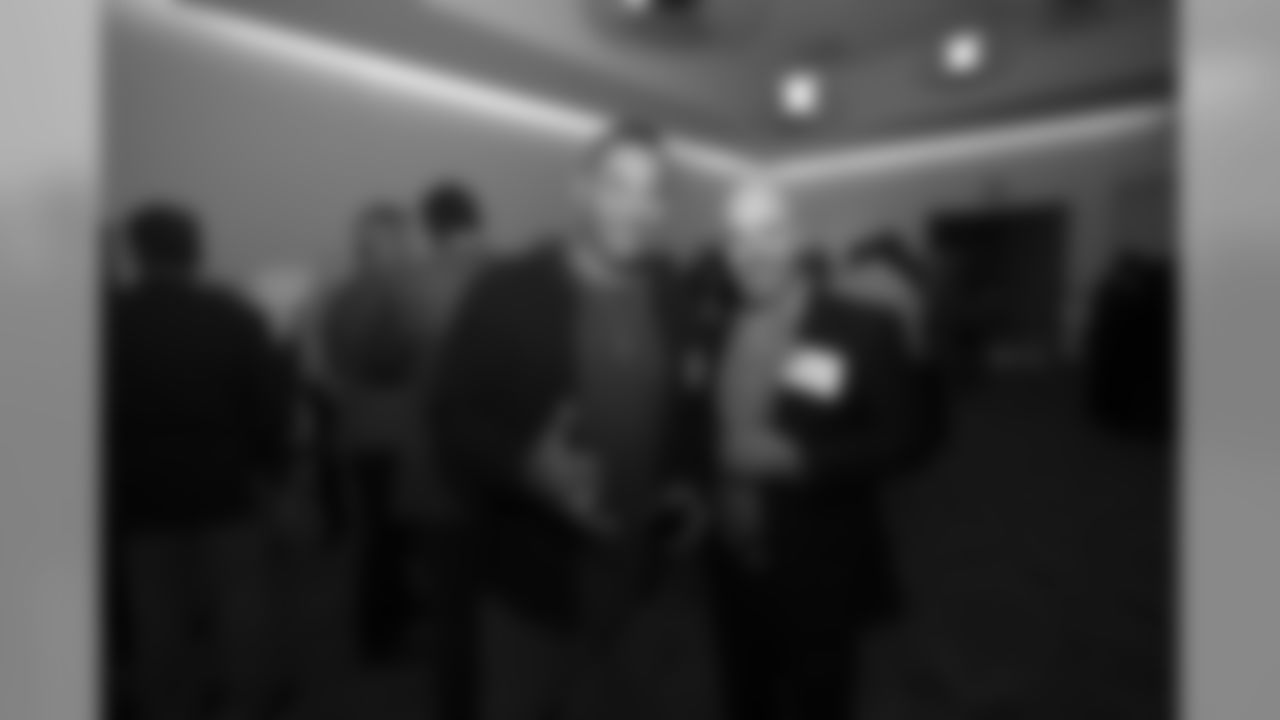
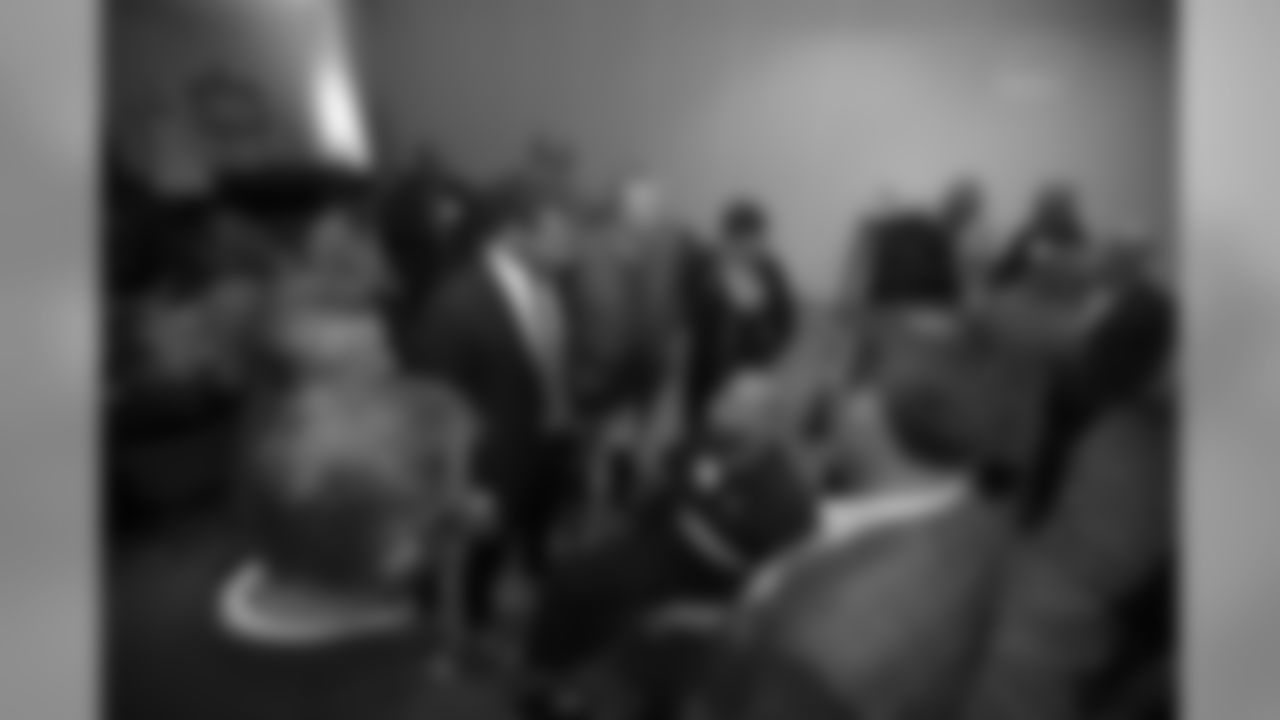
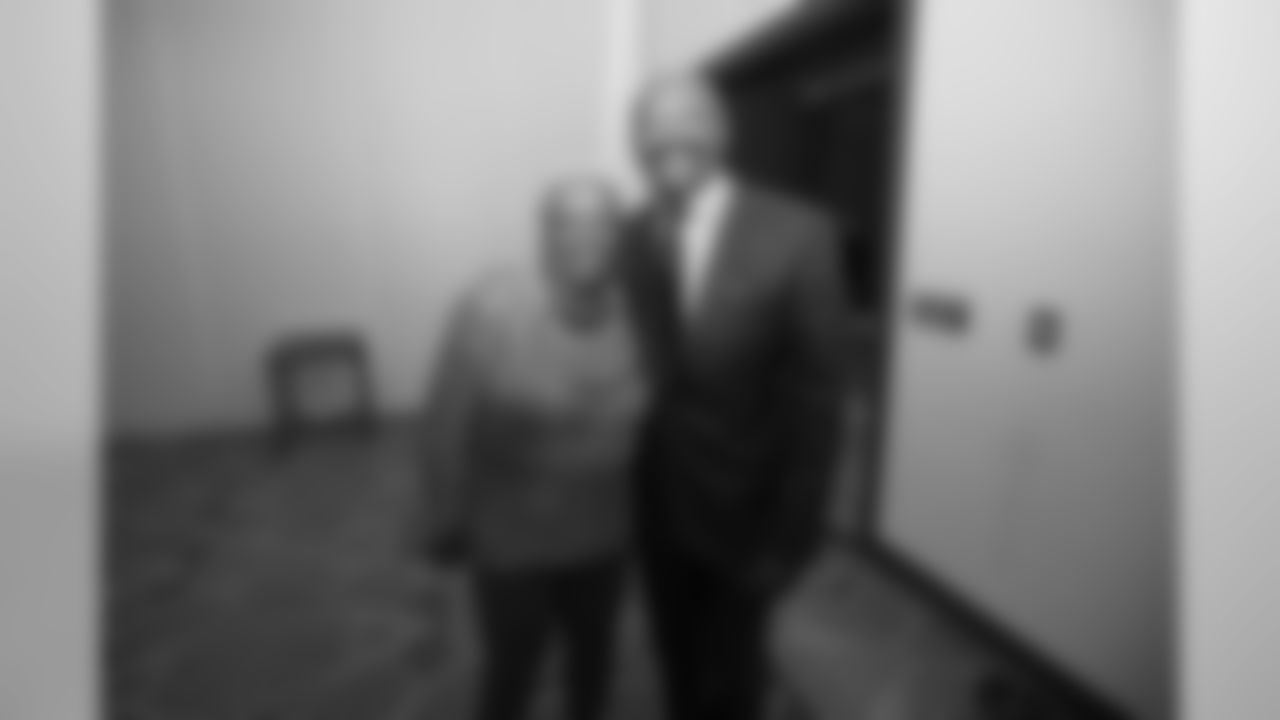
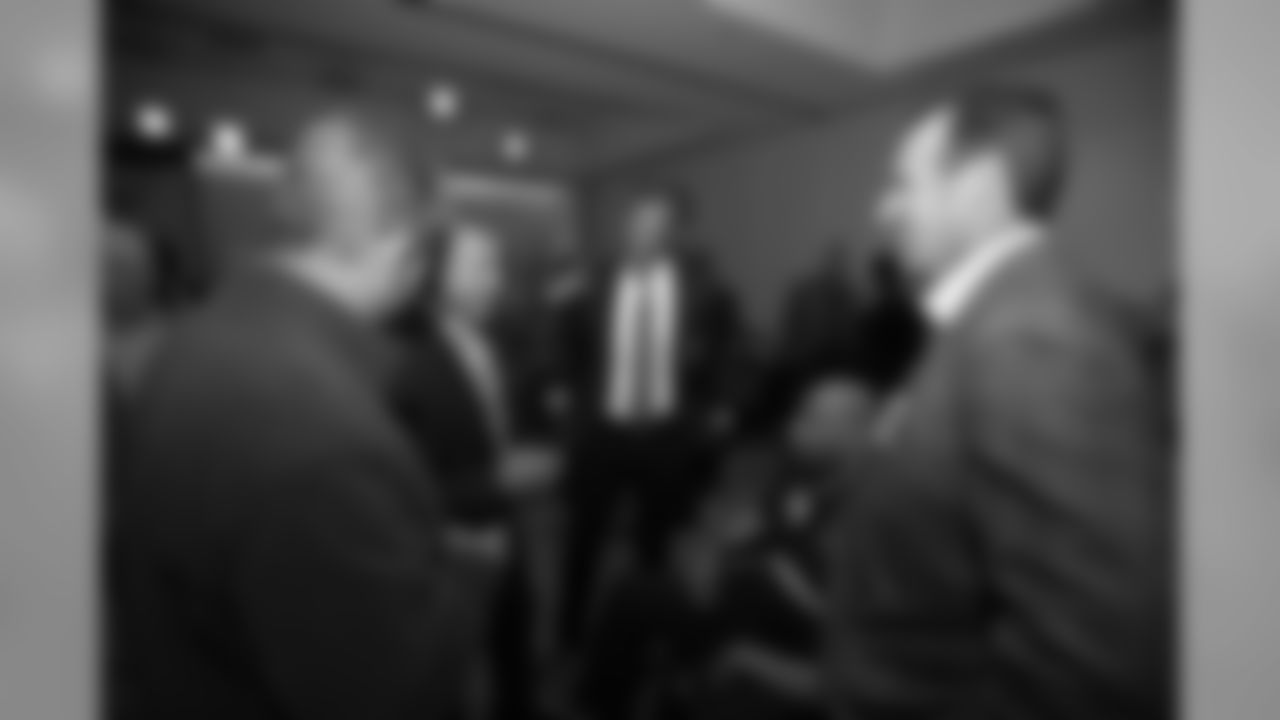
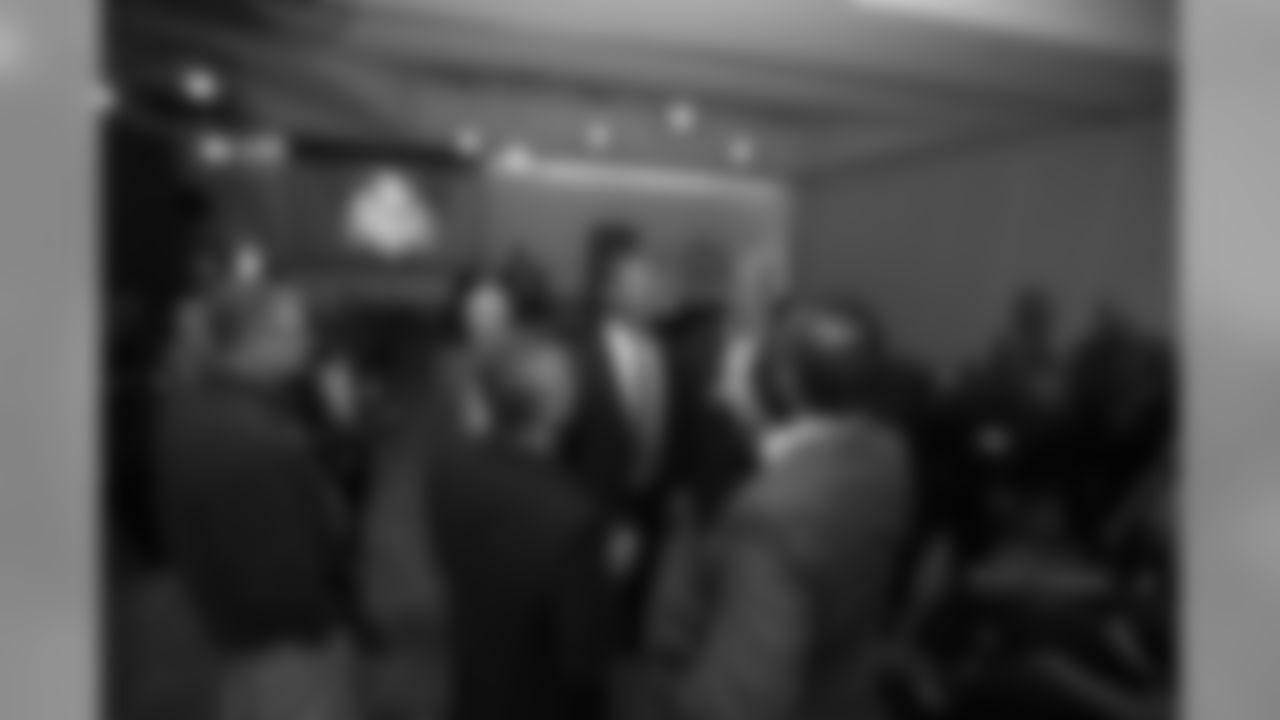
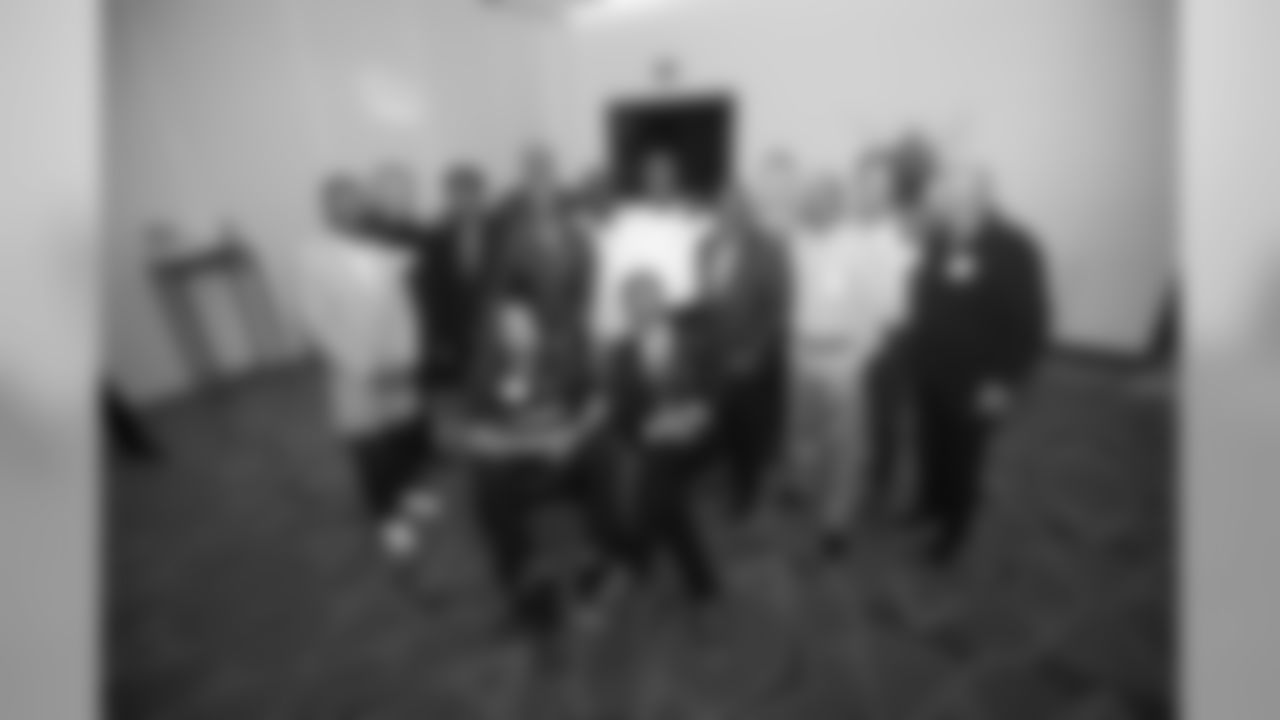
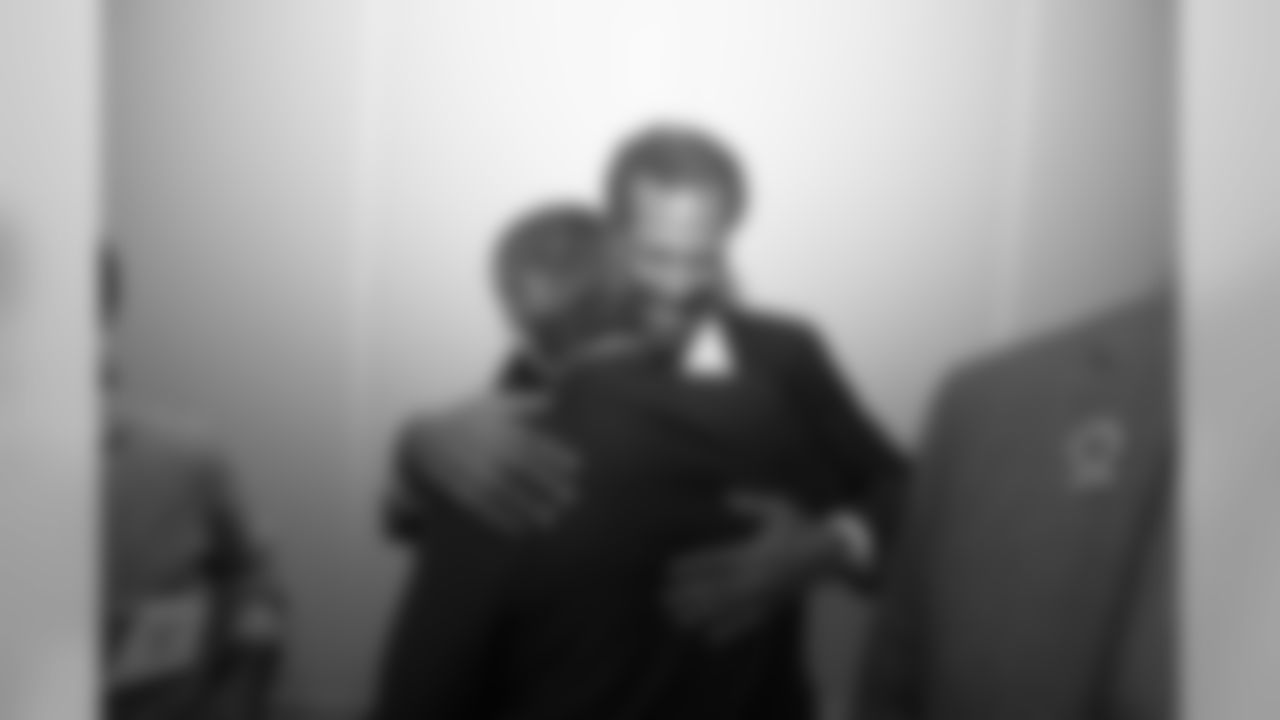
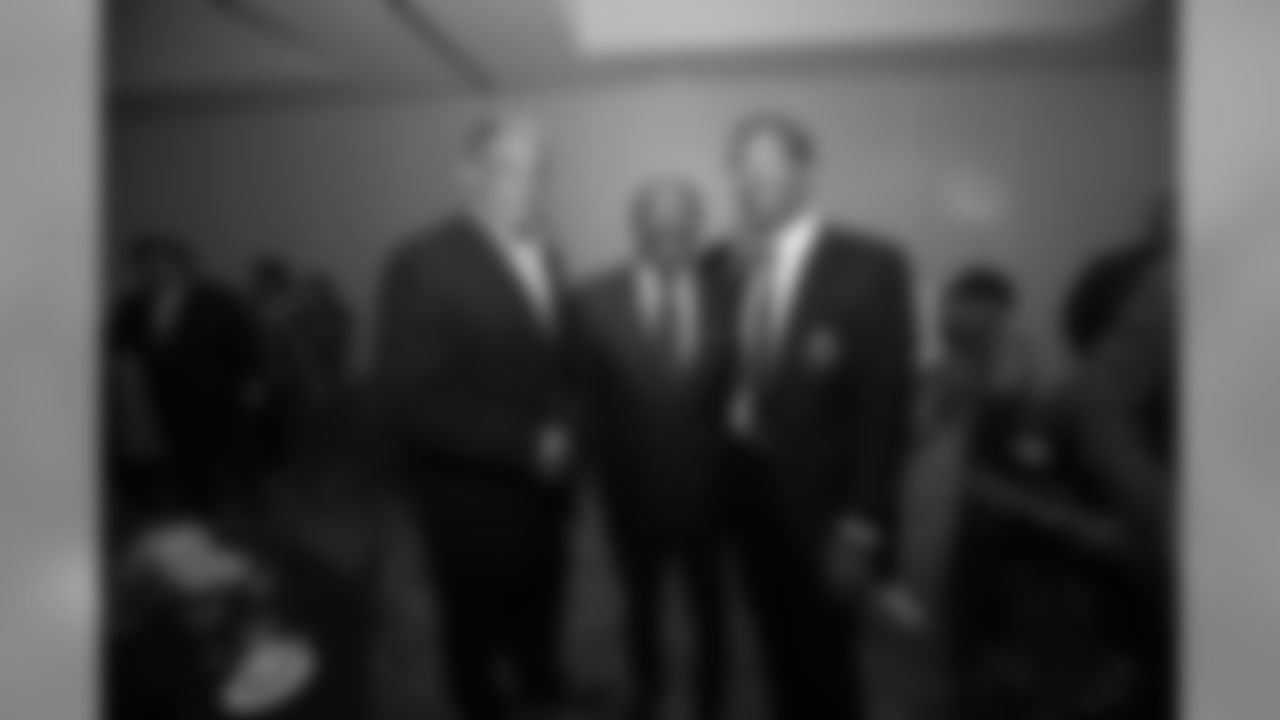




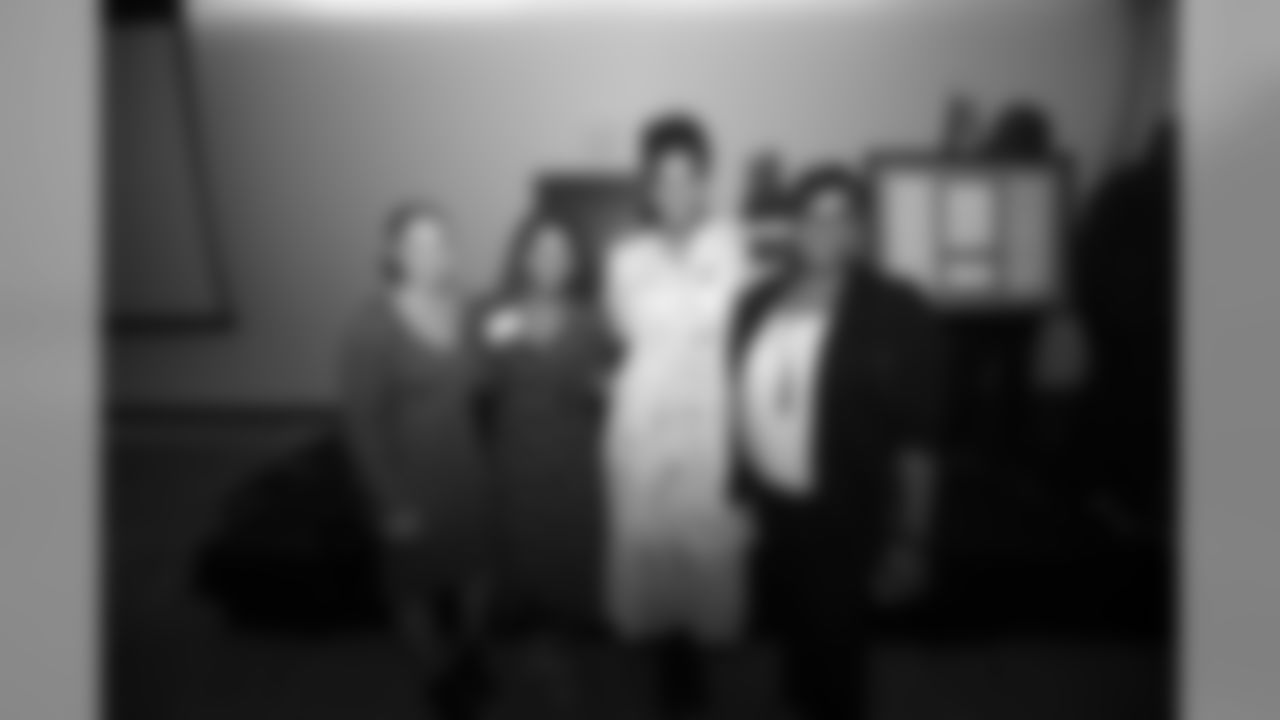
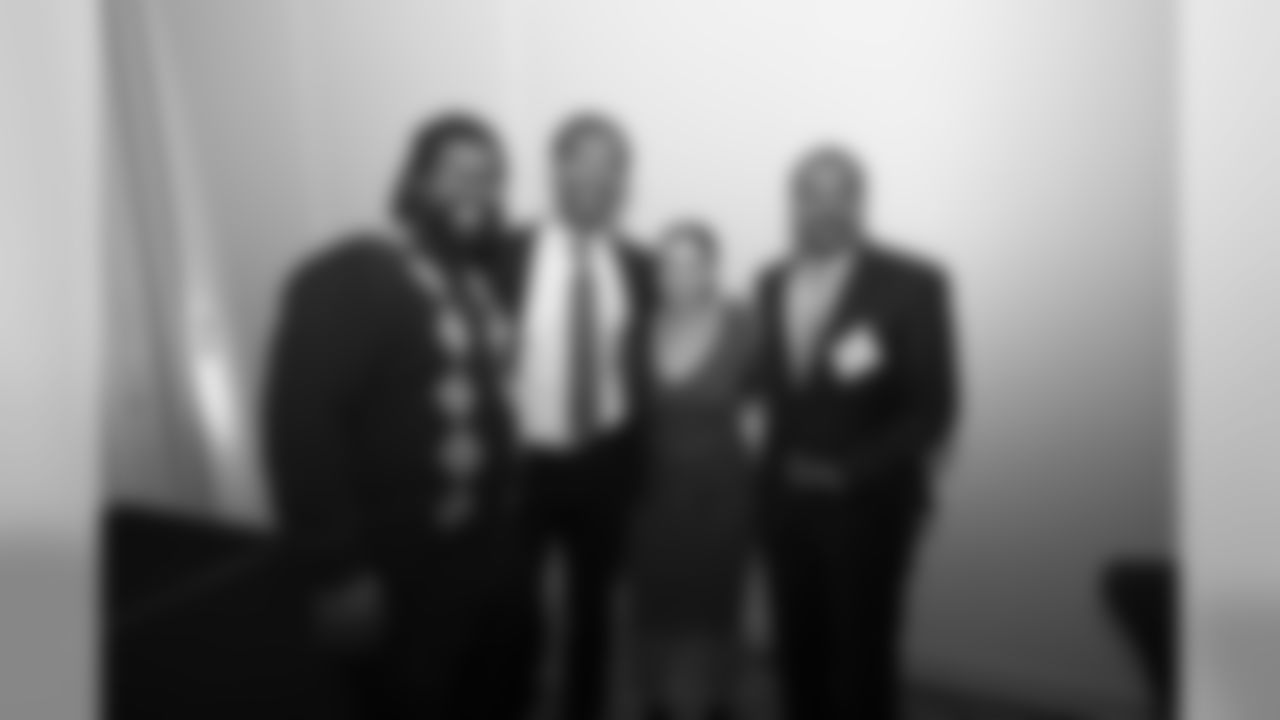
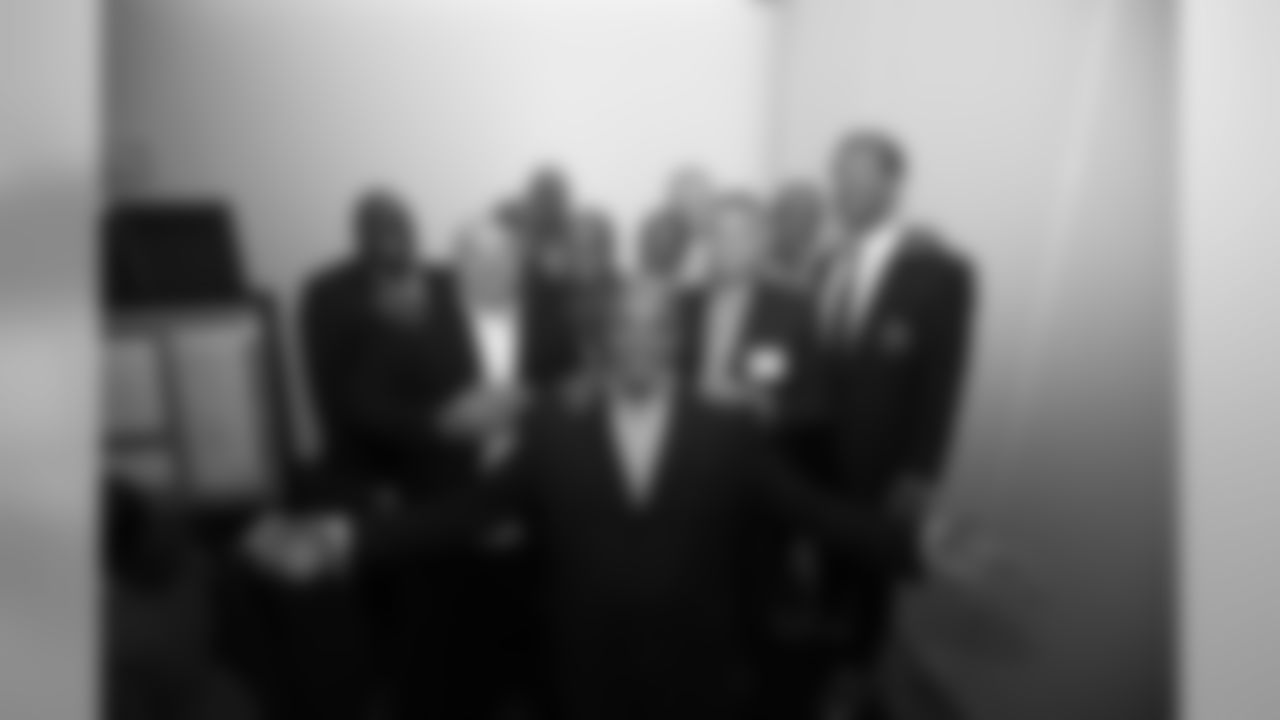





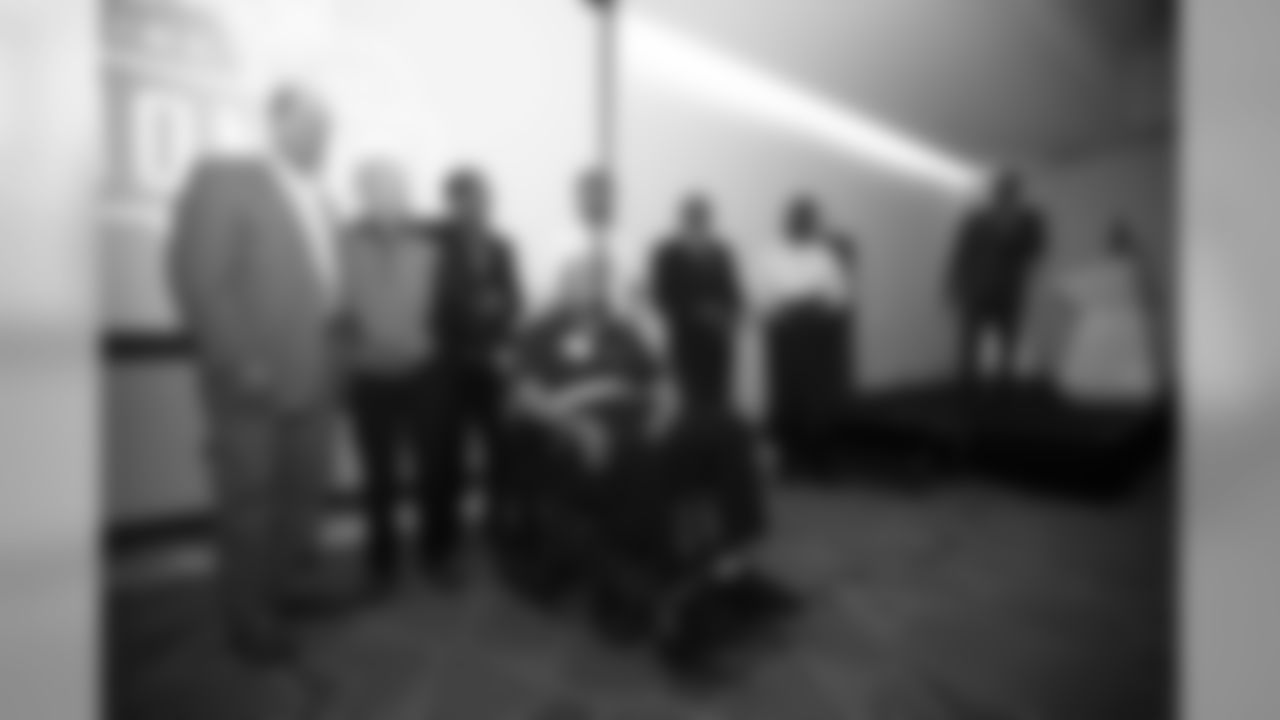
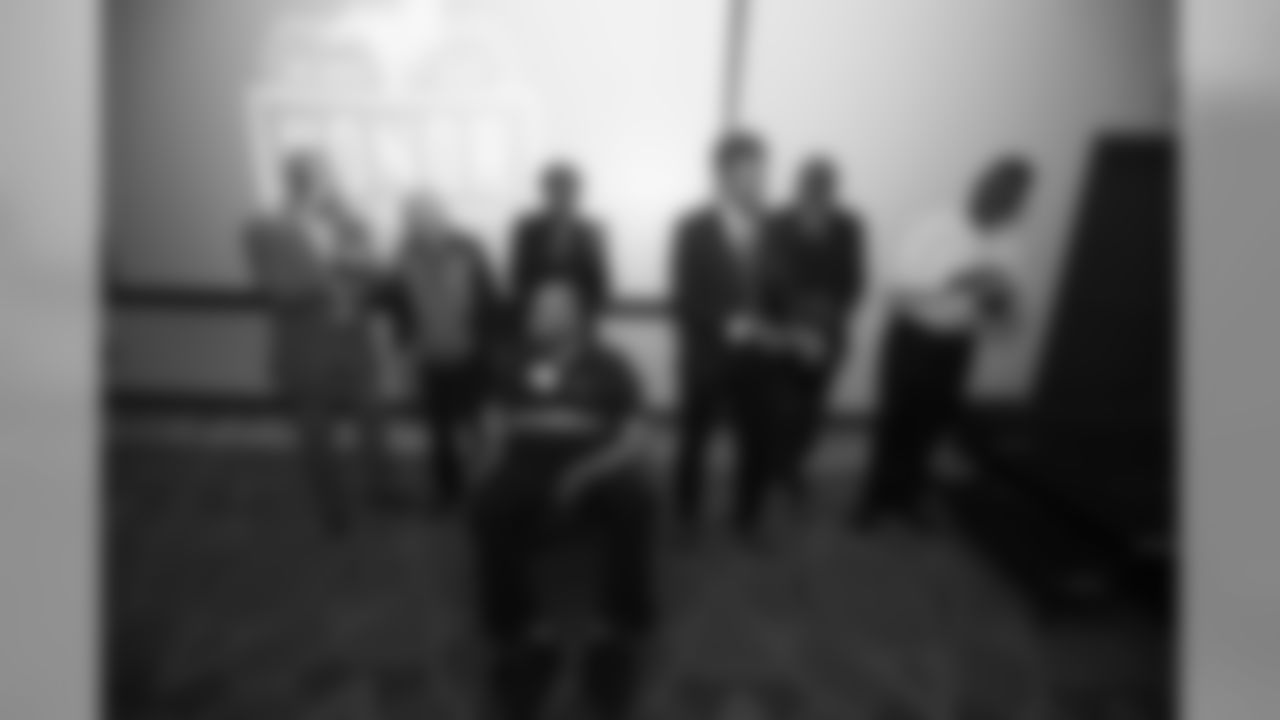

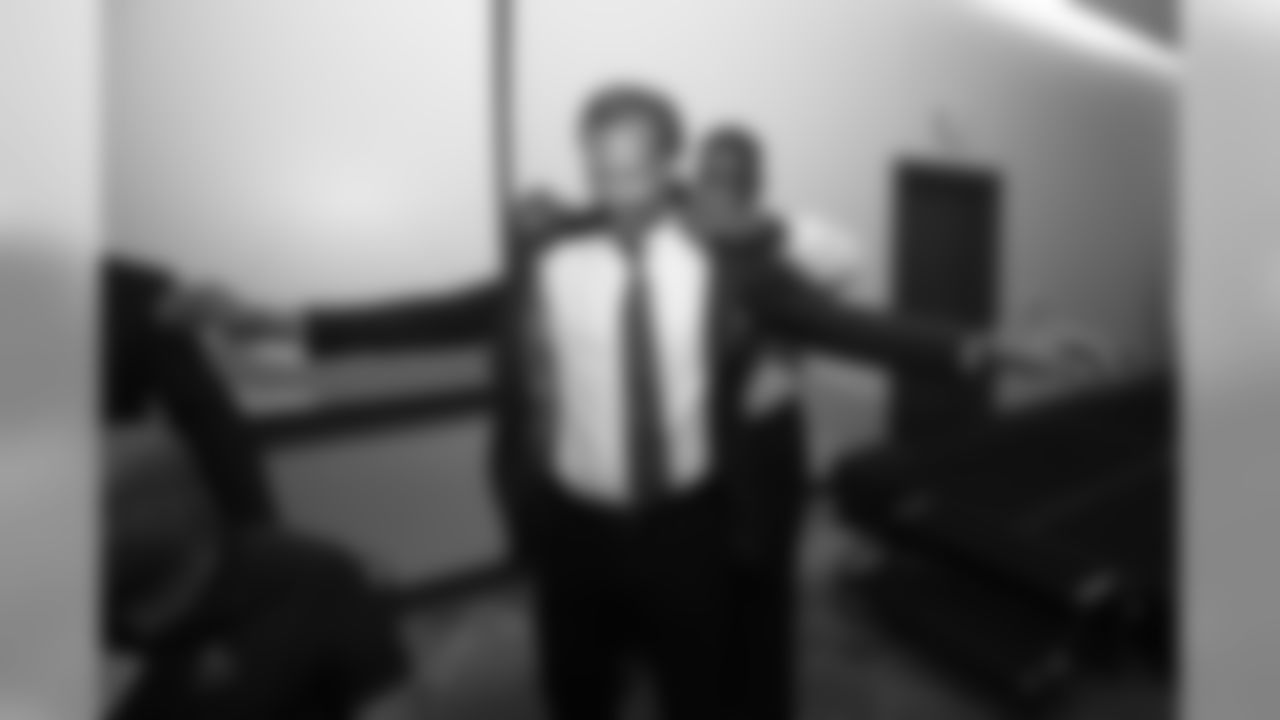
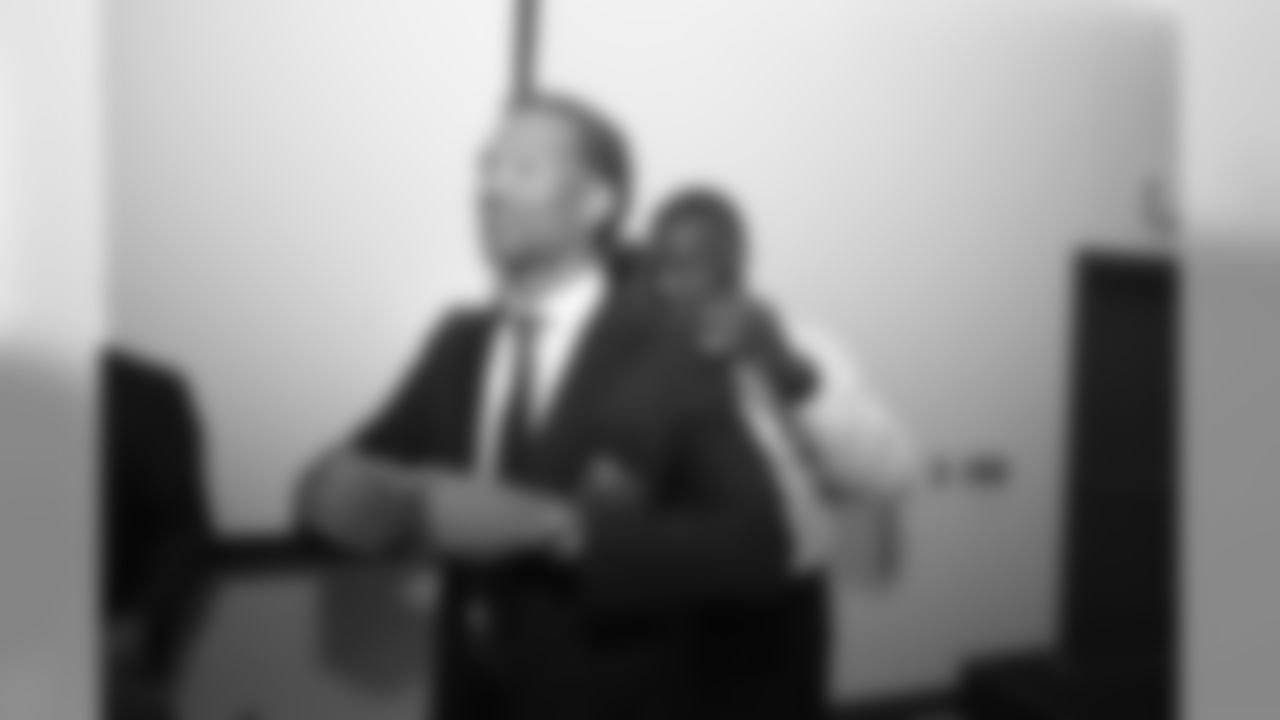
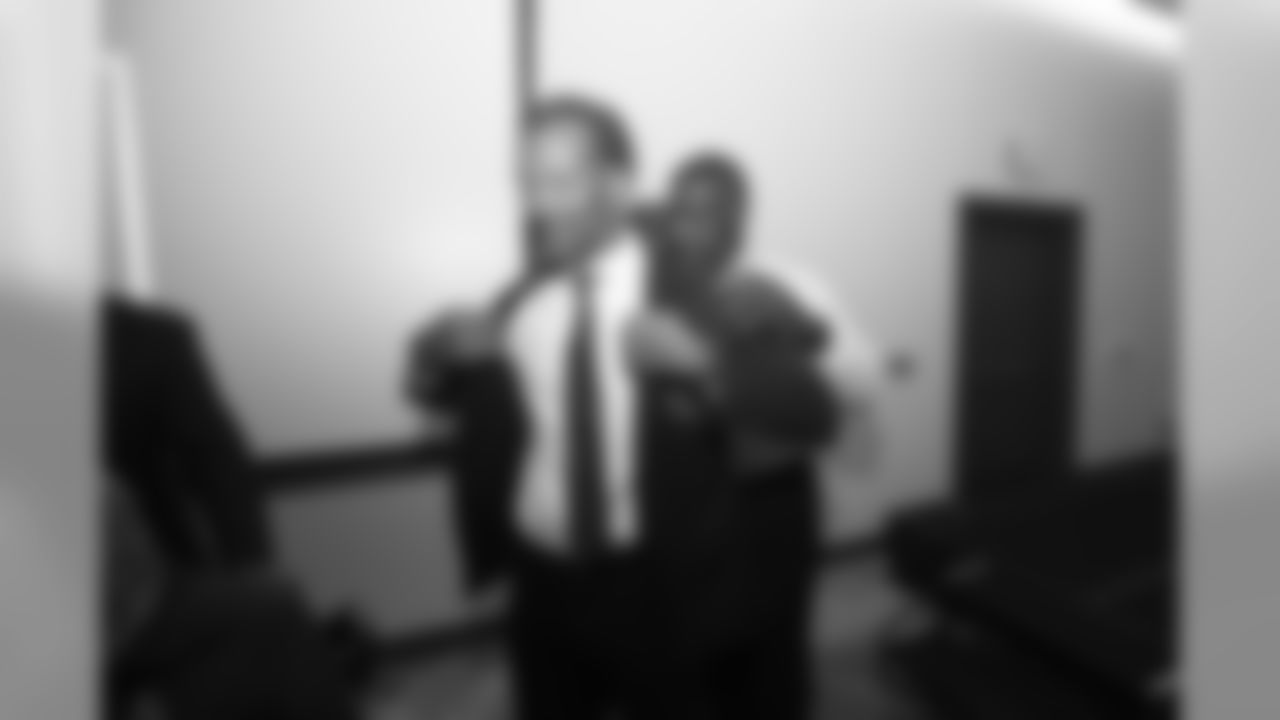
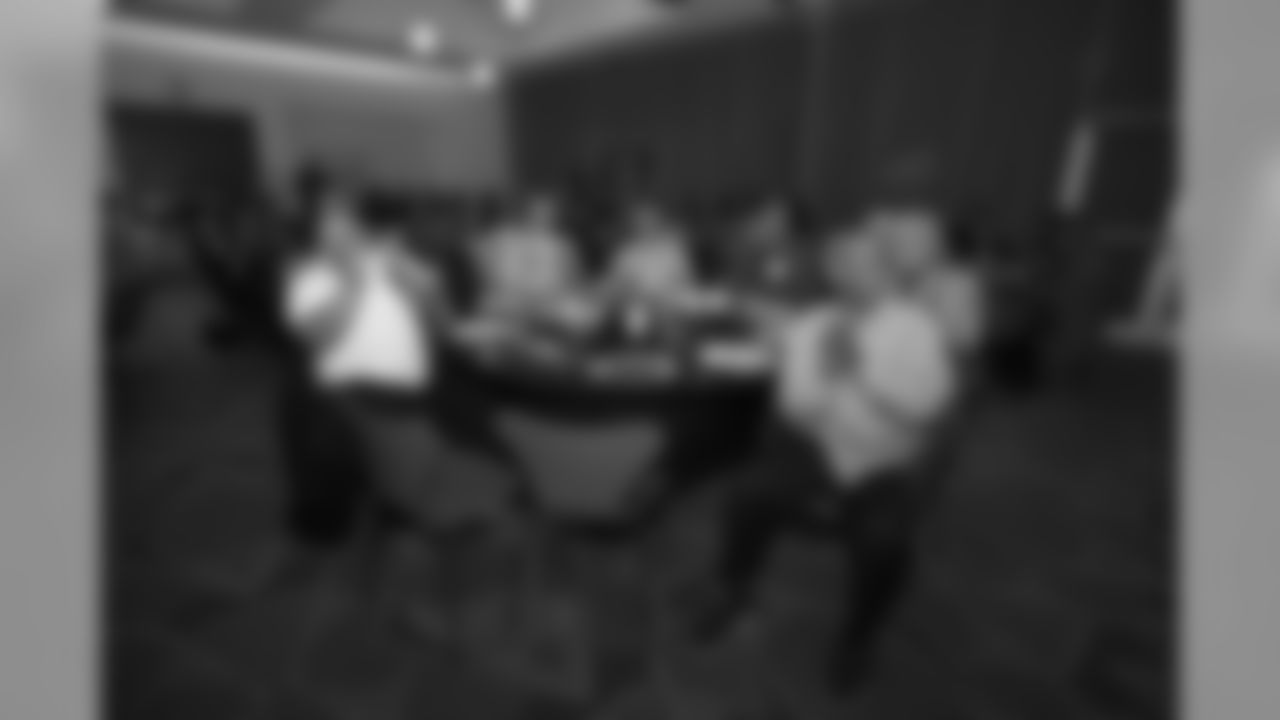
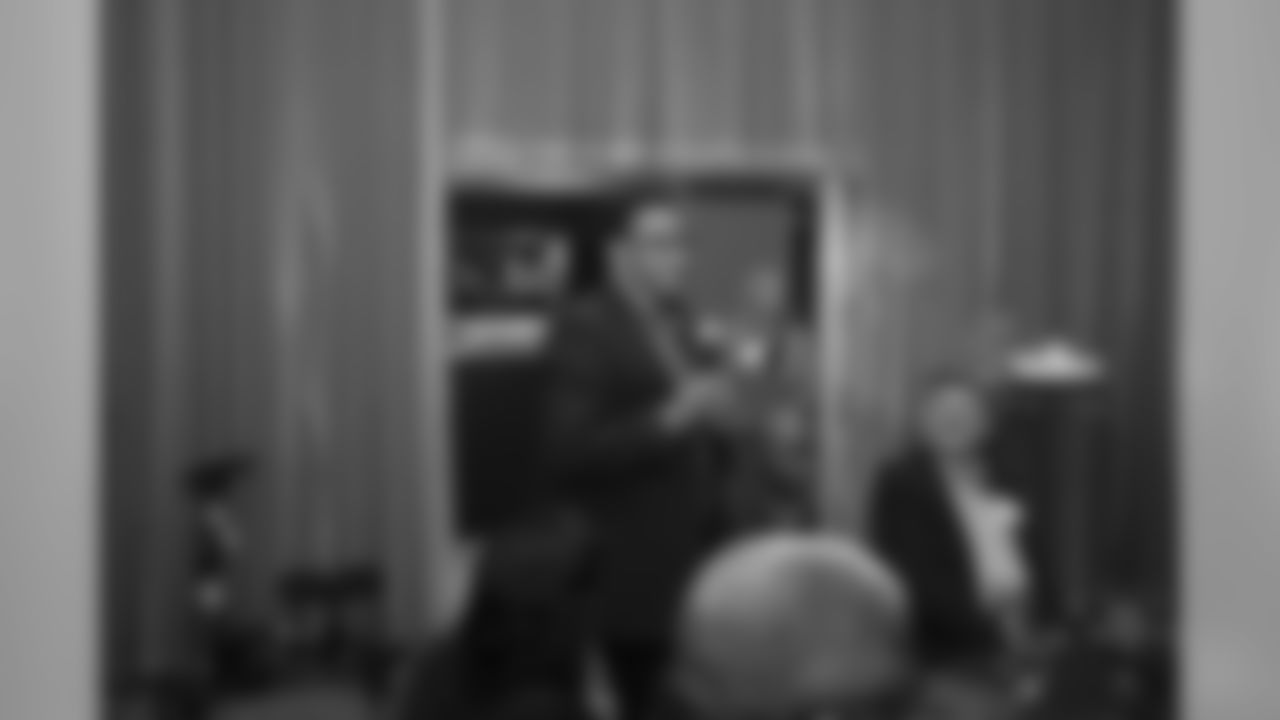

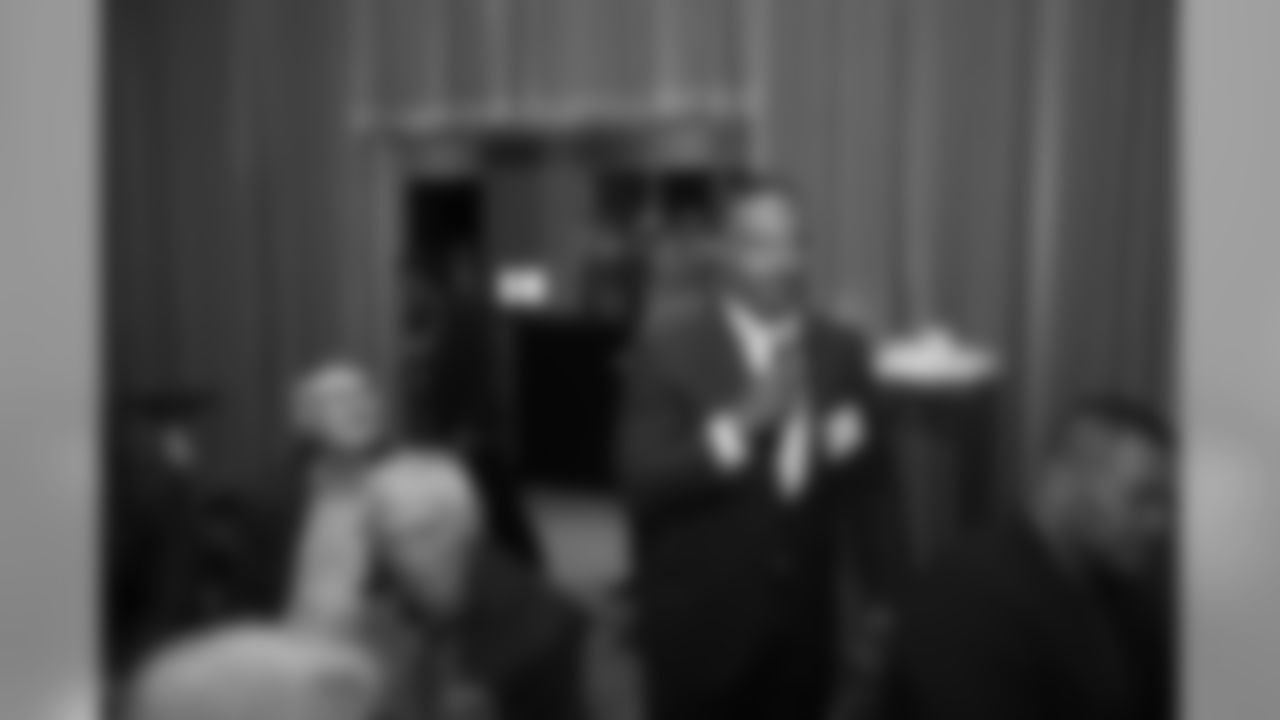
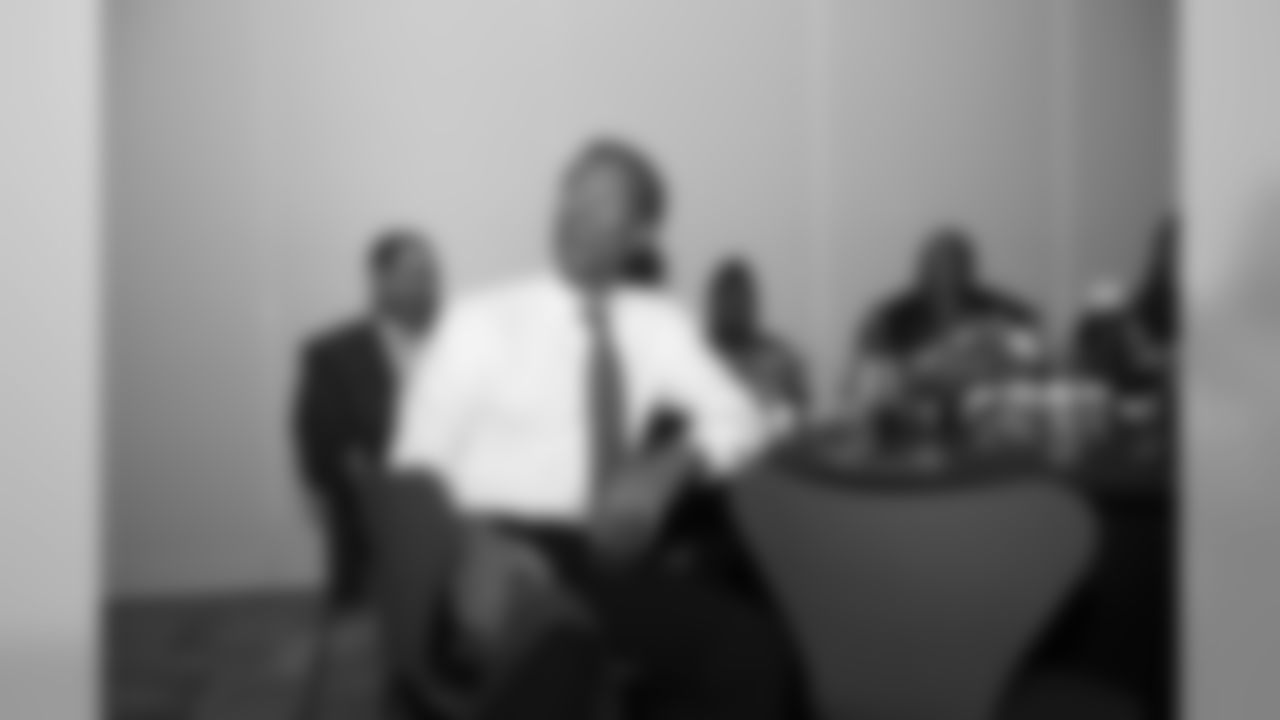
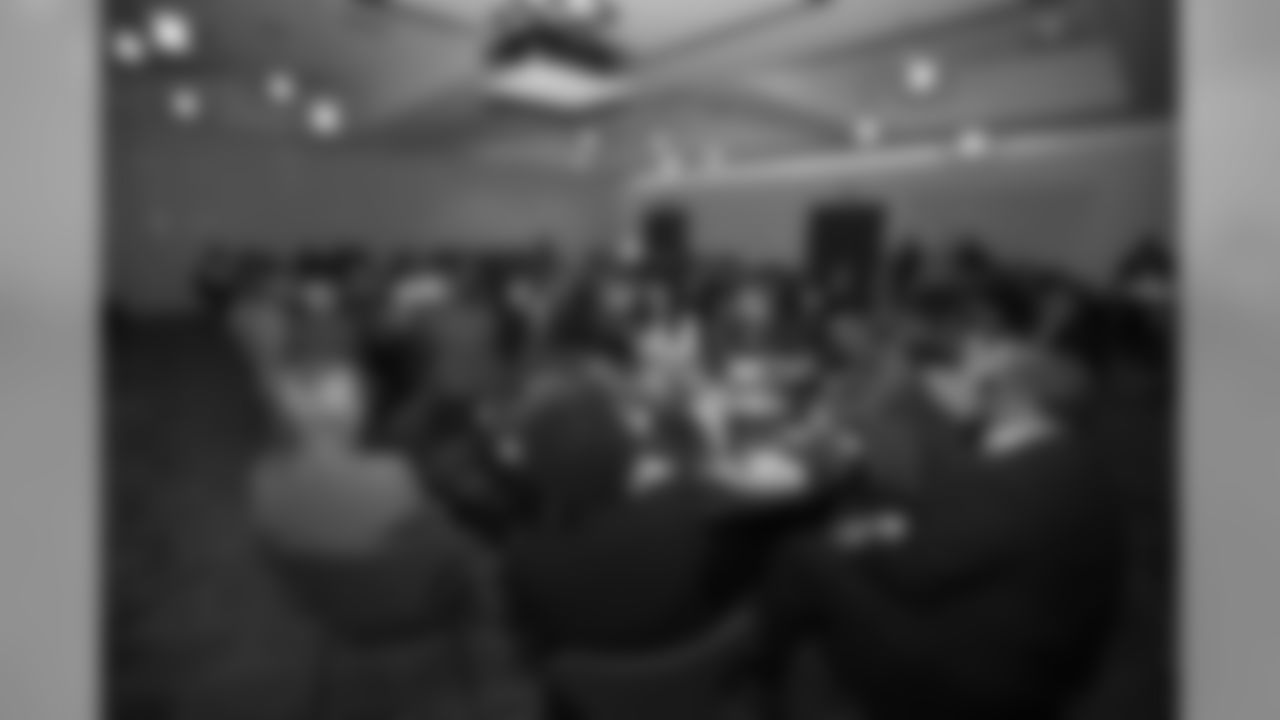
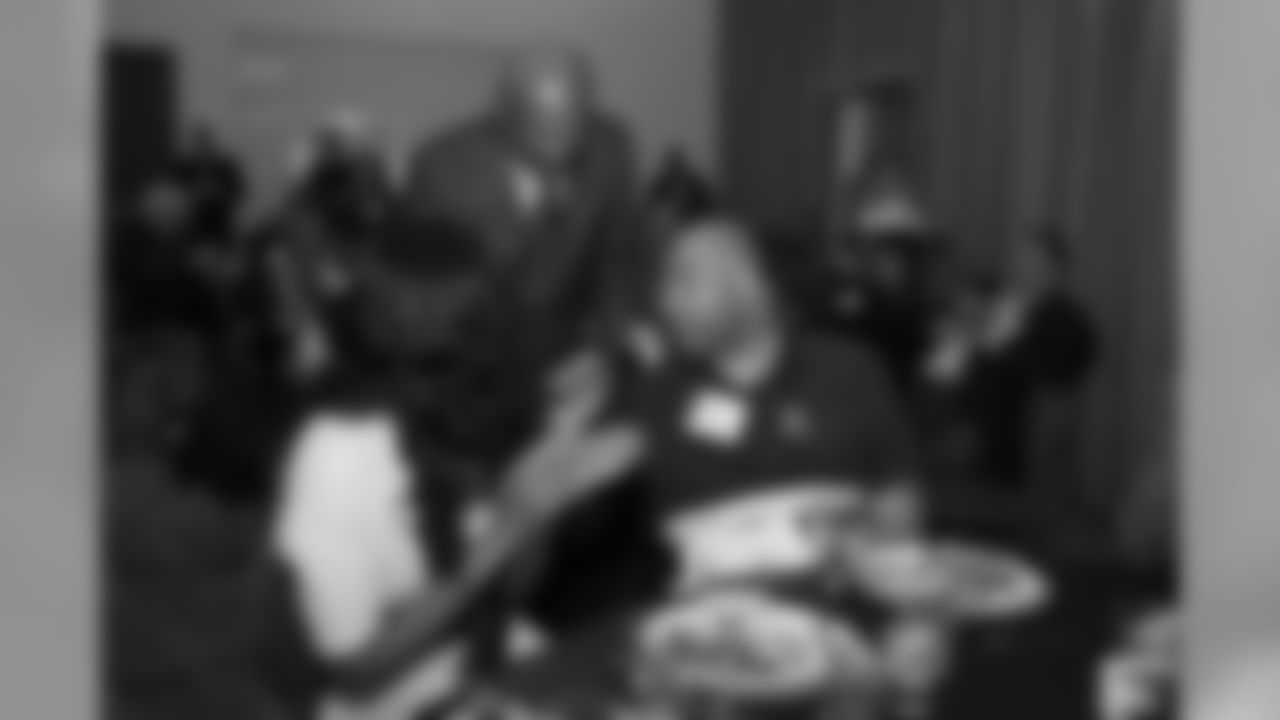



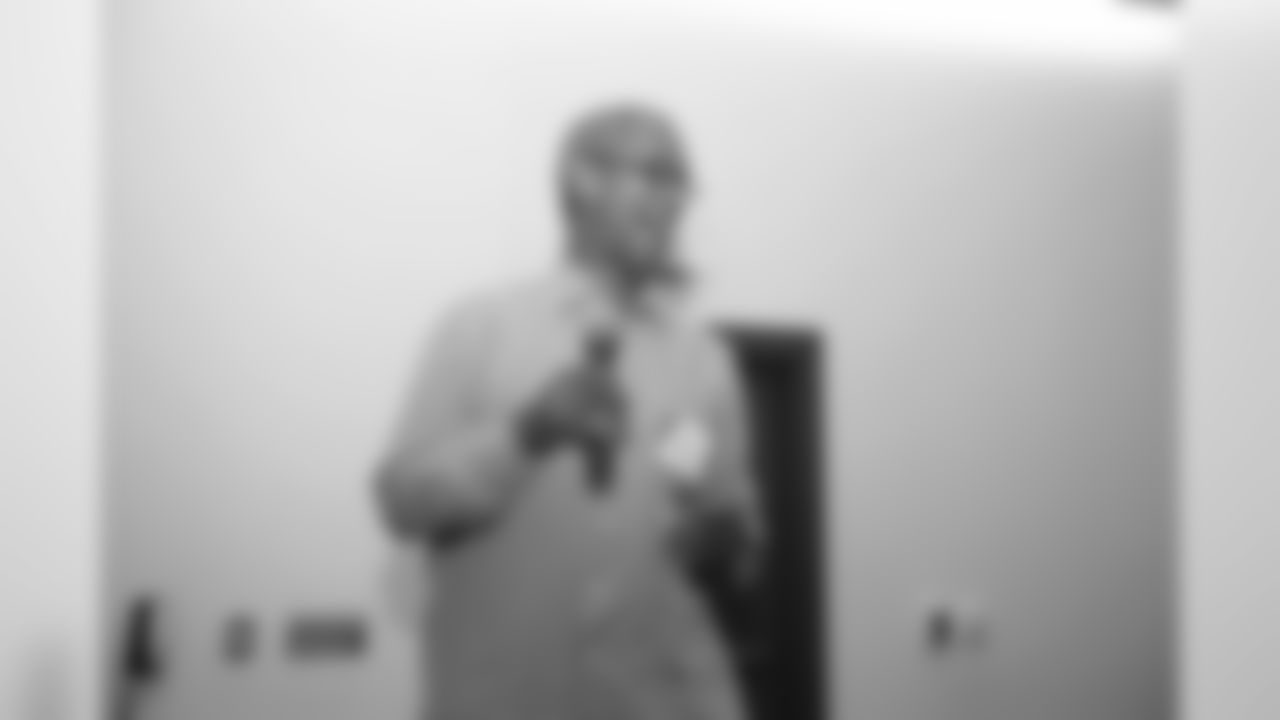

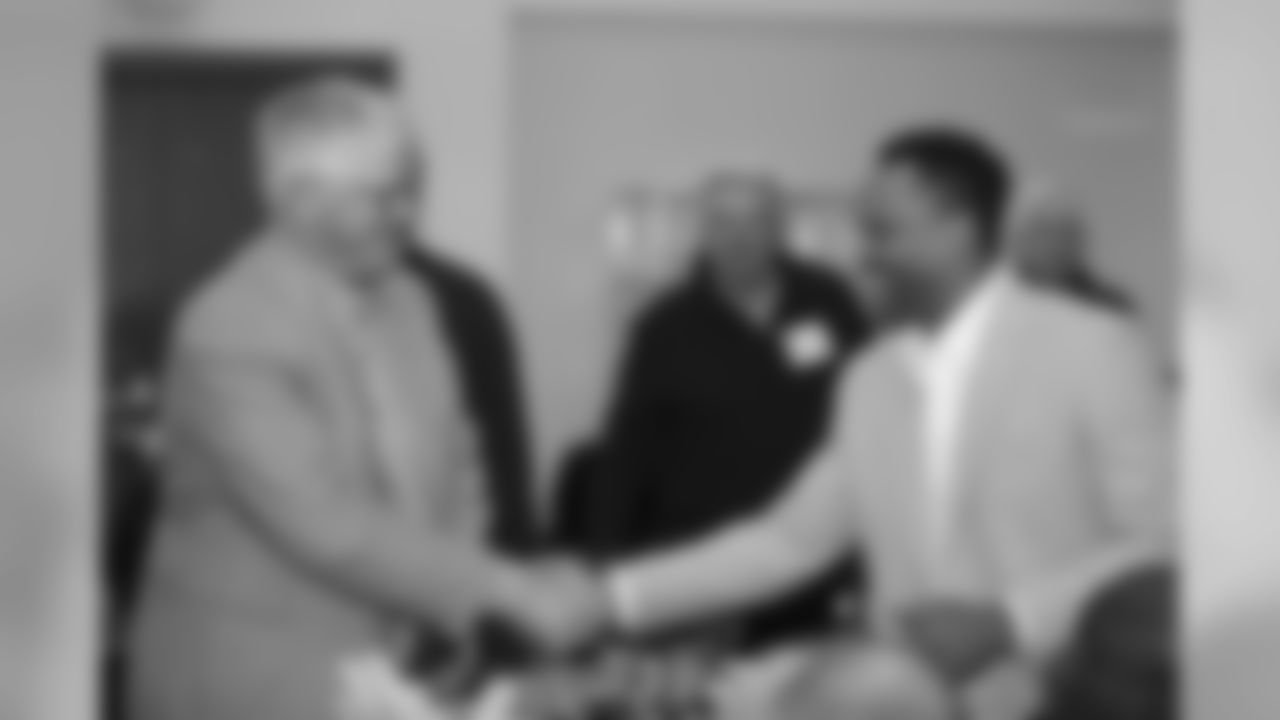
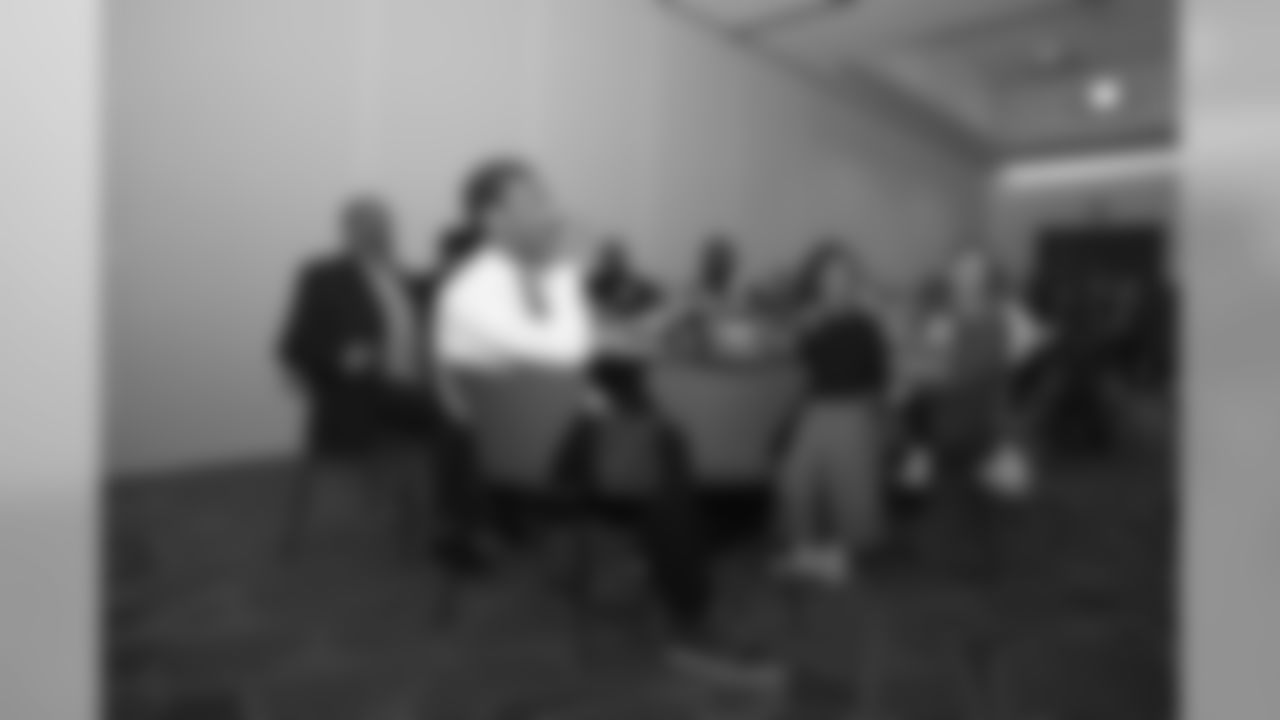



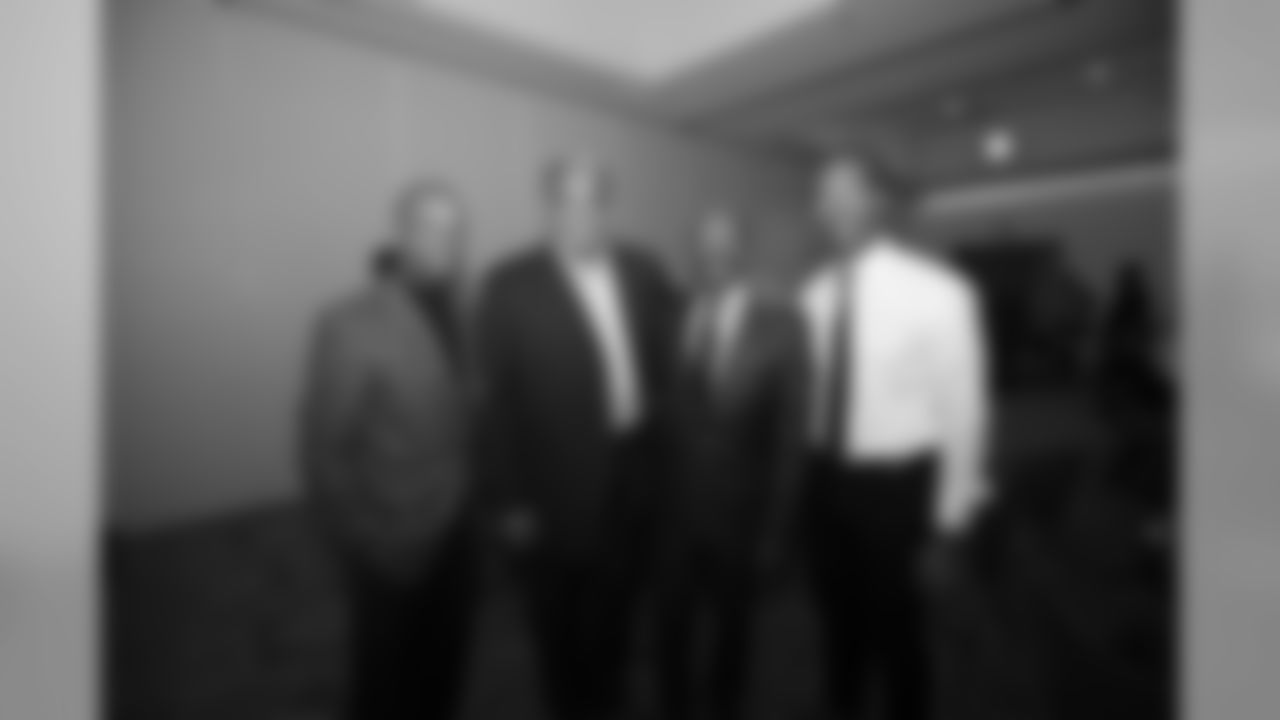

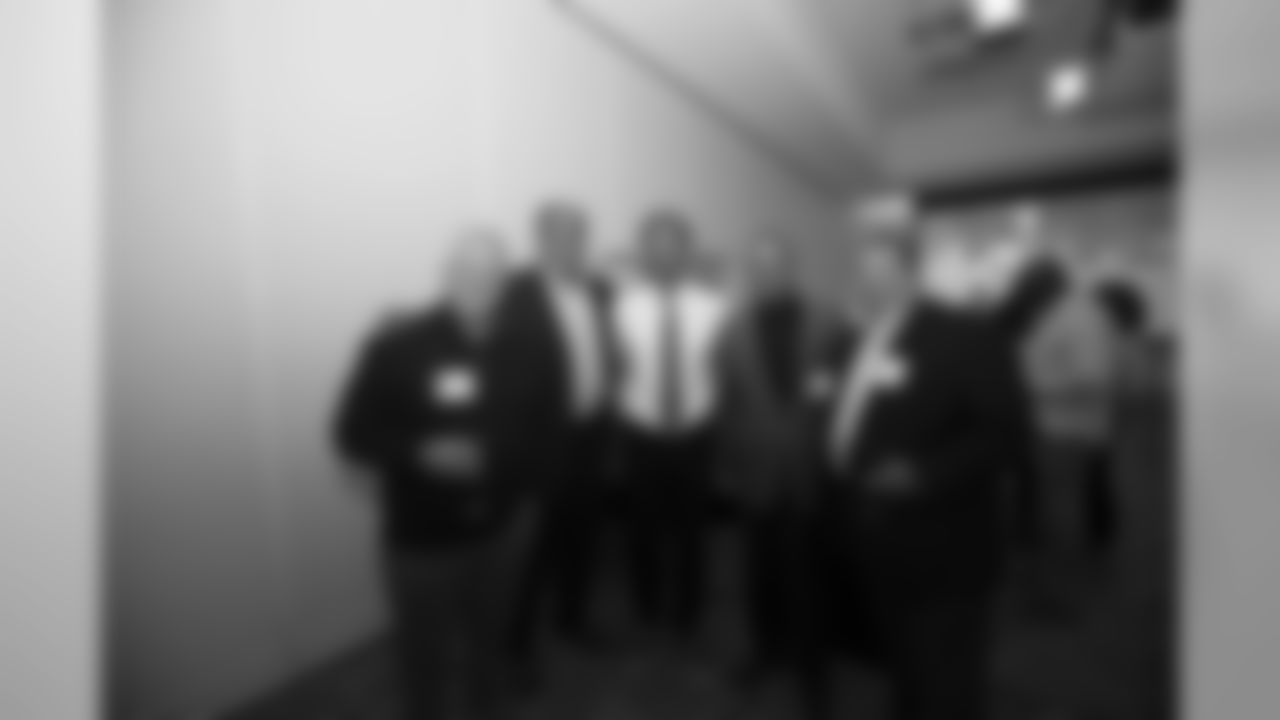
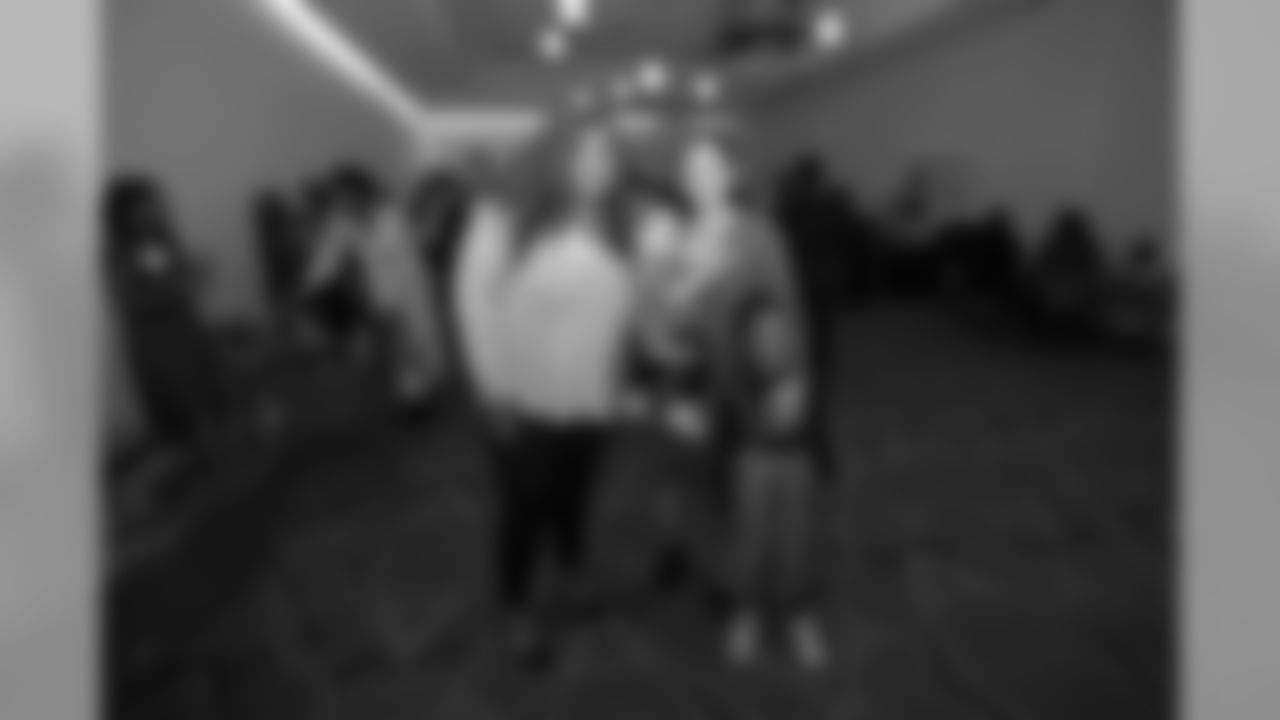
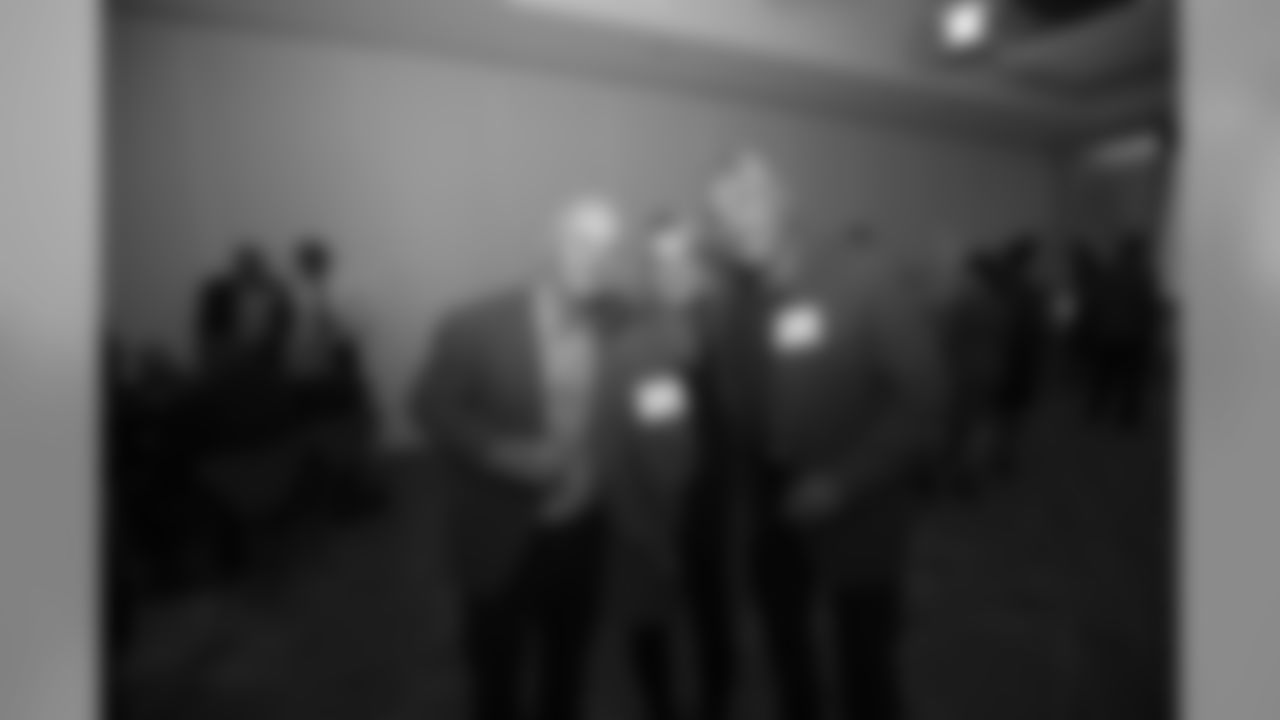
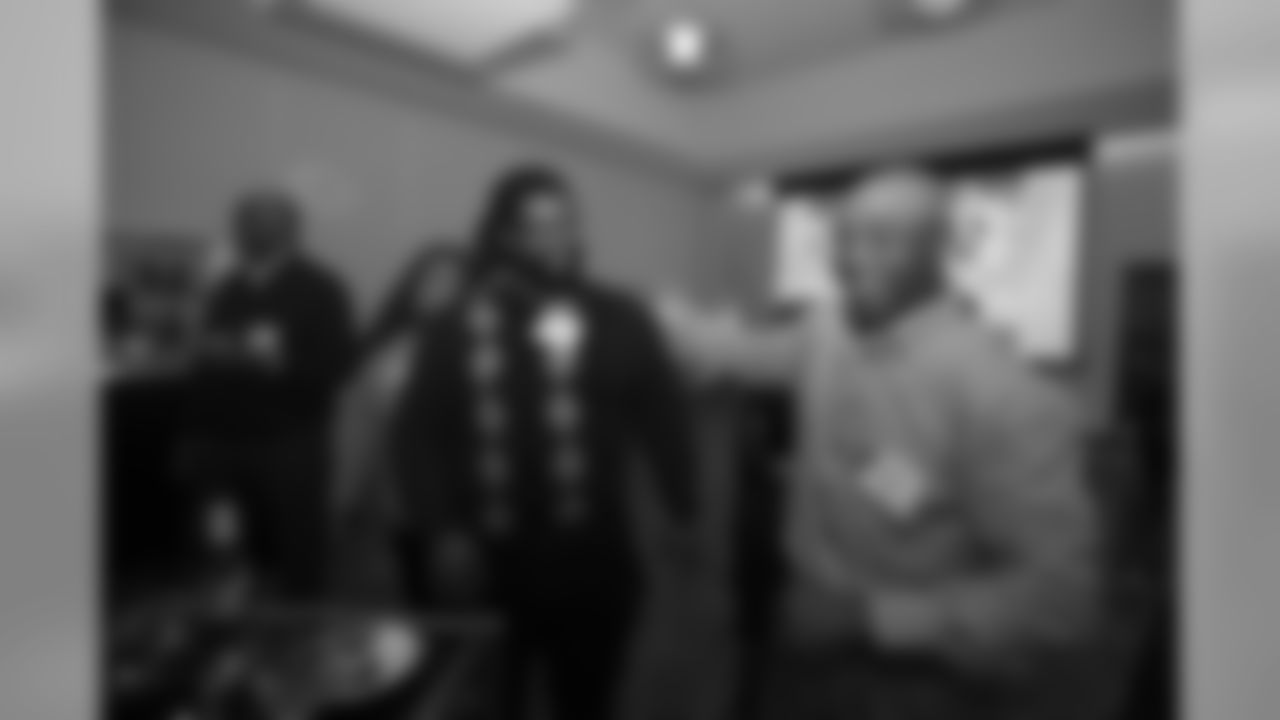

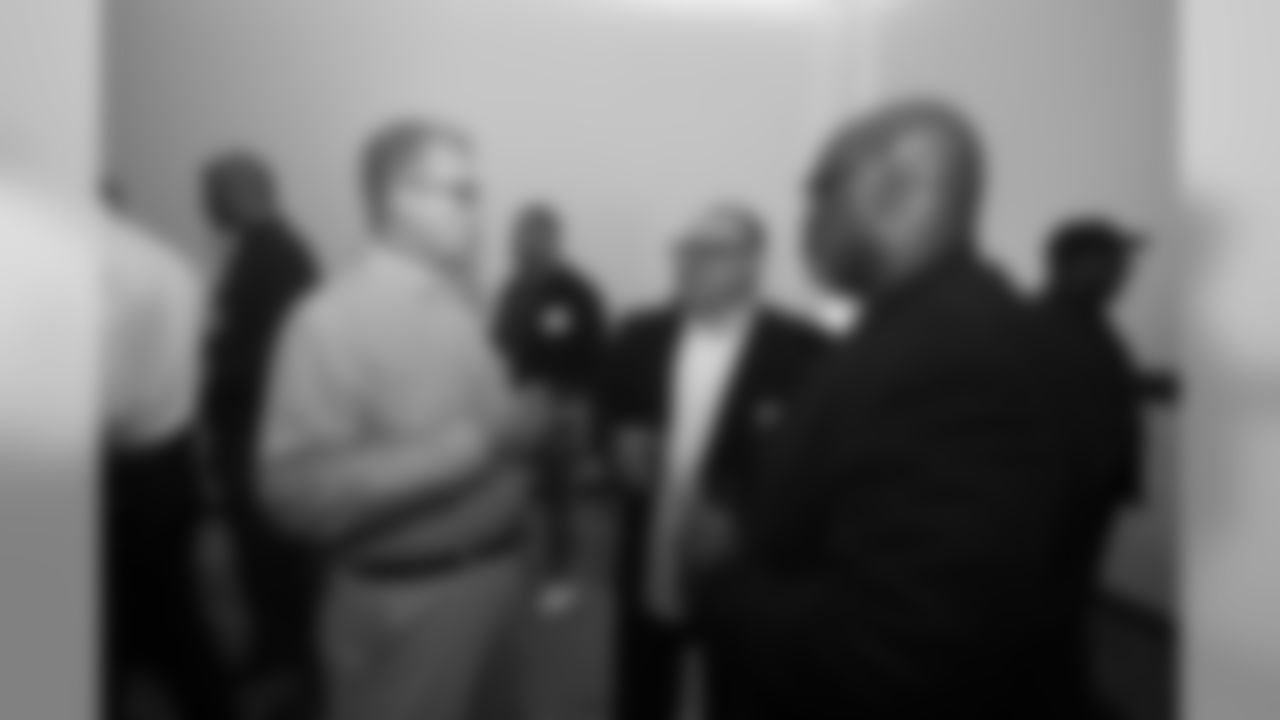
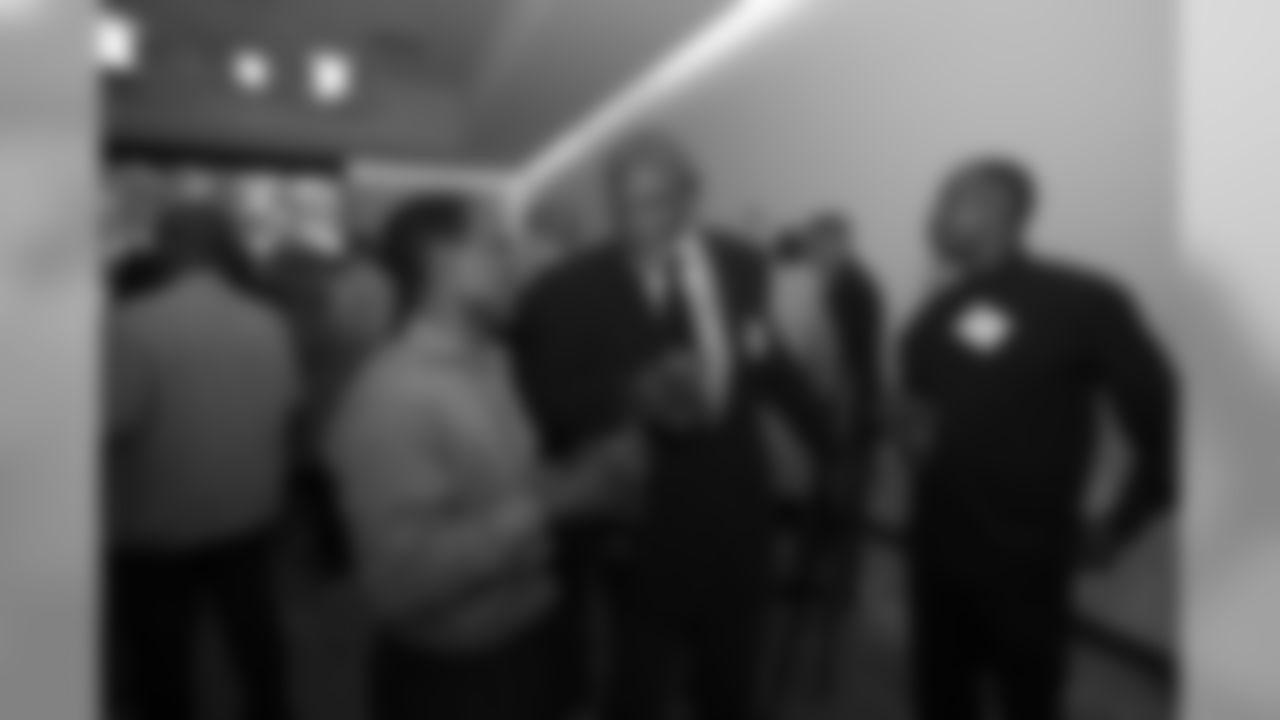
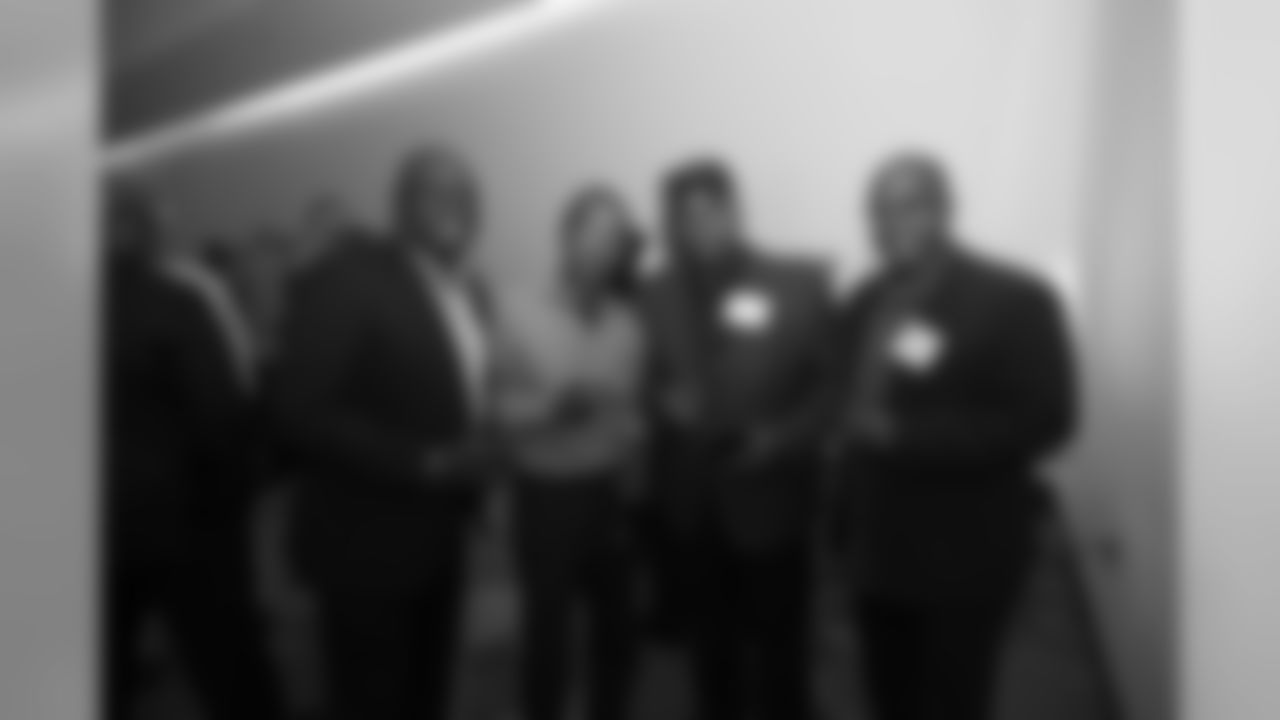
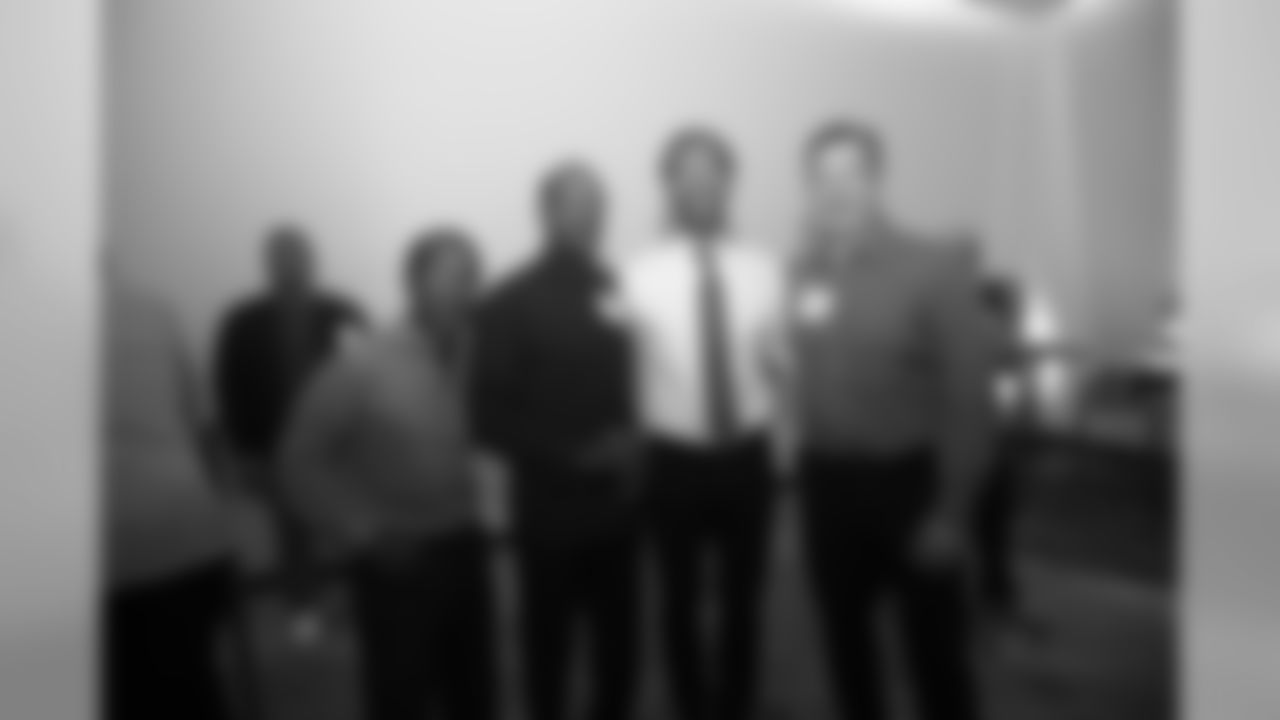
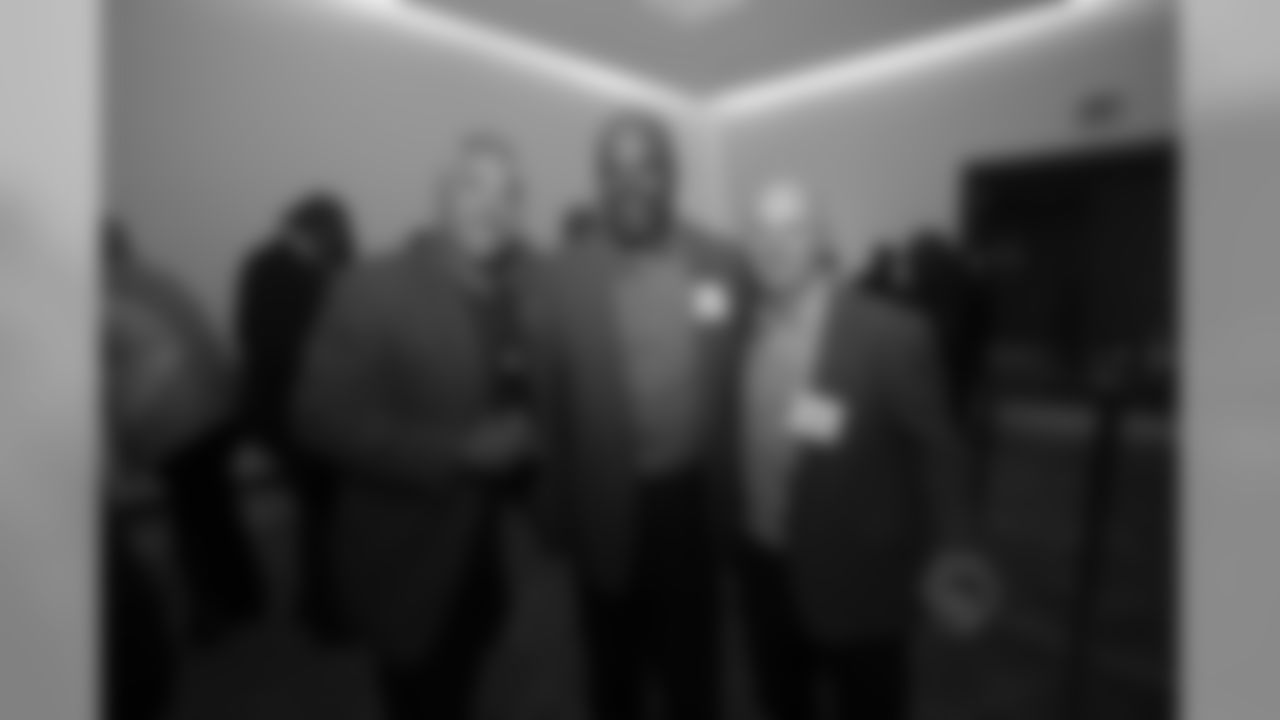
Richardson on experiencing racism at Auburn University in the early 1990s
"So I guess two years ago, we took a group of young students from the Minnesota area to the National Museum of African American History and Culture. It was interesting with the questions they had. A lot of times, young people don't quite understand our history. We were talking through looking at different displays and readings, and one of the young men asked me, 'Where's Montgomery, [Alabama]?' I told him that I went to college [about 45] minutes from there. He said, 'Did you experience racism when you were at Auburn?' I said, 'Yeah.'
"In 1992, it was rush week, and they were actually allowed to dress up as the Ku Klux Klan and put a noose around a dummy, like a slave, and drag him through campus. We were outraged. It was one of those things where there was nothing we could do because of freedom of speech. When I told the young person that, he was absolutely blown away. Even now, it still gives me goosebumps. As players we were like, 'Should we not play or should we play?' We understood it was bigger because if we didn't play, those people would win. I've carried that with me through my entire life."
Abdullah on helping change the future
"I want to connect that to history. We go through Black History Month, and it's very important for us to touch on the history that has existed. But the solution steps aren't always there, and I think there's where we're moving as a society right now with conversations like this and giving people that background of what has happened and how we can be more solution-based because we see a lot of systems that are corrupt. What are we not learning from history?
"That's my focus … on solution steps and honoring where we have been and what has been established. Black history is American history. Pillars would not exist today if Black history wasn't the foundation for a lot of things. I think the NFL is Black history, and I think our influence in the NFL has put us in a place where you can't have the NFL without Black men. That's a special thing to honor. Take that same energy you have honoring that and put it toward solutions. That's exactly what the Vikings and the Social Justice Committee have been focused on."
Jordan and Richardson on being impacted by George Floyd's death in Minneapolis
Jordan: "I will share with you that while our American history has a checkered past, there has been progress made, and one of the things I look at is the concept of allies and allyship, so I appreciate the Vikings for stepping up and having these types of conversations for Vikings staff to be involved in.
"One of the things, I think about 'Minnesota Nice' is the phrase that's often used, and when George Floyd's murder occurred, one of the things it did do was open some people's eyes. One of the things my Caucasian colleagues would say is, 'I can't believe this is happening in Minnesota. This doesn't happen in Minnesota.' It's kind of like every winter, folks in Minnesota say, 'I don't remember it being this cold.' Well, it was this cold last winter. You say that every winter. 'This doesn't happen in Minnesota.' Well, I've got to remind you that this has happened probably three or four times in the last five years. You throw out the name Philando Castille, same thing. 'Oh, wow, now I remember,' so the thing is we have to understand our history and certain things, but as a result of what happened with George, that was a confluence of a lot of things happening. Frankly, COVID was happening, so we didn't have all of the distractions of other major sports going on. That happened at the end of May, so we didn't have NBA basketball in full-ride of the playoffs, you didn't have baseball, you had a lot of things that weren't happening, so everybody could focus on what was going on. That was a good thing.
"It also helped some of my colleagues, a lot of our Caucasian colleagues to get up-to-speed on what's going on and to have these uncomfortable conversations. It brings up this concept of allyship. When I look back, even in my time in Minneapolis, I met a number of just wonderful, wonderful, hardworking people, but at the same time, there is a lot of this embedded racism, systemic racism. We talk about redlining, people were like, 'Not in Minnesota.' Redlining started in Minnesota back in the early 1900s, so yes, we're absolutely guilty. I love having these conversations because everyone gets an opportunity to be educated."
Richardson: "With George Floyd, I commend the Wilf family … we actually jumped on a call and talked about it. If history is going to continue to repeat itself, we have to continue to have these types of forums and talk. That's the only way this cycle is going to change. When [Floyd's death] happened, my neighbors on each side of me asked if we could go up on the roof and just have a conversation. They didn't quite understand the things we go through, even as a professional athlete. I said, 'Look, I drive a pretty decent car. But driving through New York City, every single time I drive through the Midtown Tunnel, I get pulled over.' My dad always said not to reach for anything. The officer said my window tint was too dark but it was factory window tint.
"We had a conversation about, even though I'm a former professional athlete, we deal with these issues every single day. Just having a conversation in 2020, it's opened eyes for everyone. They didn't realize the things I have to deal with. For me, every single day I'm trying to keep my shoulders pinned forward and lead our young people. The only way things are going to change is conversations like this and open dialogue and really being transparent with the fear we have to deal with. I shouldn't be afraid to have a nice car because I'm afraid I'm going to get pulled over all the time. Those are some of my experiences, and I appreciate the NFL giving our platforms to share our stories."
Washington on the importance of equal education in America
"We hear about pro football players having a platform. To me, the most important platform you have to think about and work at is the education part. In addition to that, I think pro athletes … you have to understand the issues. What's happening with housing, in the voting situation? We're surrounded by an unemployment situation. We talk about the pandemic … anything in American life … it always comes up that people of color, poor people, we're always bringing up the rear. Corporate America, for example … it would be nice to have opportunities as vice presidents and presidents and running companies. We really have to look at the big picture, and it all starts with education."
Abdullah on the Vikings locker room bonding over uncomfortable conversations
"Obviously I'm growing up in an integrated time period … Kyle Rudolph, Kirk Cousins, the want-to understand is there when I'm talking about my Caucasian counterparts in the locker room. The want-to understand the history, the want-to understand why some people may agree with rioting and some people may not … things that have happened that were breaking points in African American history, which is American history, that have put our community and Black people as a whole in a certain energy and frequency, I would say, to get certain reactions after things like George Floyd.
"I think those types of discussions were unbelievable because it broke down barriers. It broke down walls within the locker room that really helped us and some of our success last season because of that camaraderie we had built as teammates. Some of the conversations weren't pleasant. They're not pleasant all the time, and obviously, being from different backgrounds, how you perceive the truth is going to be completely different. Neither side is necessarily wrong. It's about how you're taught, the educational portion that Gene was talking about, so we definitely went through a lot of the psychoanalysis of the situation as a whole and we attacked it empathetically.
"I think that's encouraging for a young athlete who is still in the league today, but the conversations are still very tense at times, so, luckily, I am part of an organization like the Vikings where they handpick their players exactly like they are from the top down where they are authentic people, so in our locker room, we do have a lot of authentic people you can have these conversations with, but I'm not sure it's the same across the board in the NFL. Guys like Kyle Rudolph and Kirk Cousins definitely stepped up because they see their Black coworkers every day and have built a brotherhood with those guys, and just to see that George Floyd could potentially be one of them. That moves them, and I think allyship as we spoke to, is definitely at a different place now, and using that to the best of our ability is the most important thing."
Page Discusses "History of Voting" | By Craig Peters
Alan Page, a member of the Vikings Ring of Honor, Pro Football Hall of Fame and retired Minnesota Supreme Court Justice, participated in a "History of Voting" panel earlier this month as part of the EVERFI Character Playbook series.
Page, who was elected to become the first Black member of the Minnesota Supreme Court in 1992, explained the importance of voting and protecting everyone's right to vote.
"For me, it's about having a voice and giving yourself control over what government is, what it does, what it says, because the reality is government's actions, they do it in our name, and the only way we can control that is to exercise our Constitutional right to participate in that process," Page said.
He described the way that poll taxes and literacy tests were "used to deny people who were poor with a disproportionate impact on African Americans" and deny rights that had eventually been granted through amendments to the U.S Constitution. Page said after those efforts had been ruled unconstitutional, efforts shifted toward creating other policies that could disenfranchise people.
"[Voter identification requirements are] just another vehicle under the guise of preventing voter fraud, which by every measure that I've seen, every objective measure that I've seen, is maybe not nonexistent but as close to it as we can probably get," Page said. "It becomes a tool to prevent people from voting. On its face, you think, 'Well, voter identification, that's really race-neutral.' The fact is, it may be race-neutral, but it has a disparate impact, and that disparate impact denies people the right to exercise their franchise."
Page said protection of voting rights is so important to him because so many sacrifices that have occurred to grant and protect them. He mentioned being 18 years old in June 1964 when he watched reports of the slayings of Civil Rights activists James Chaney, Andrew Goodman and Michael Schwerner in Philadelphia, Mississippi, as well as the murder of Viola Liuzzo in Selma, Alabama, the following year.
"We talk about the importance of voting, these people gave the last full measure so that we could have the opportunity to participate," Page said. "I will never forget those people, because it is on their backs that we stand, and the people before them who gave their lives."
Page encouraged the young people to be able to voice the changes that they seek for the future.
"In this political system that we have, the most effective way to have our voice heard is through the ballot," Page said. "There are those that might argue that the ballot doesn't always work. Well, it doesn't always get you what you want, but when the choice is effectively between the ballot and the bullet if we're going to be a civilization, we have to exercise the power that we have, and that power is in casting our vote, having our voice heard, having our leaders do what we seek as opposed to doing what they choose. They represent us, and it is through our collective voices that we get heard."








